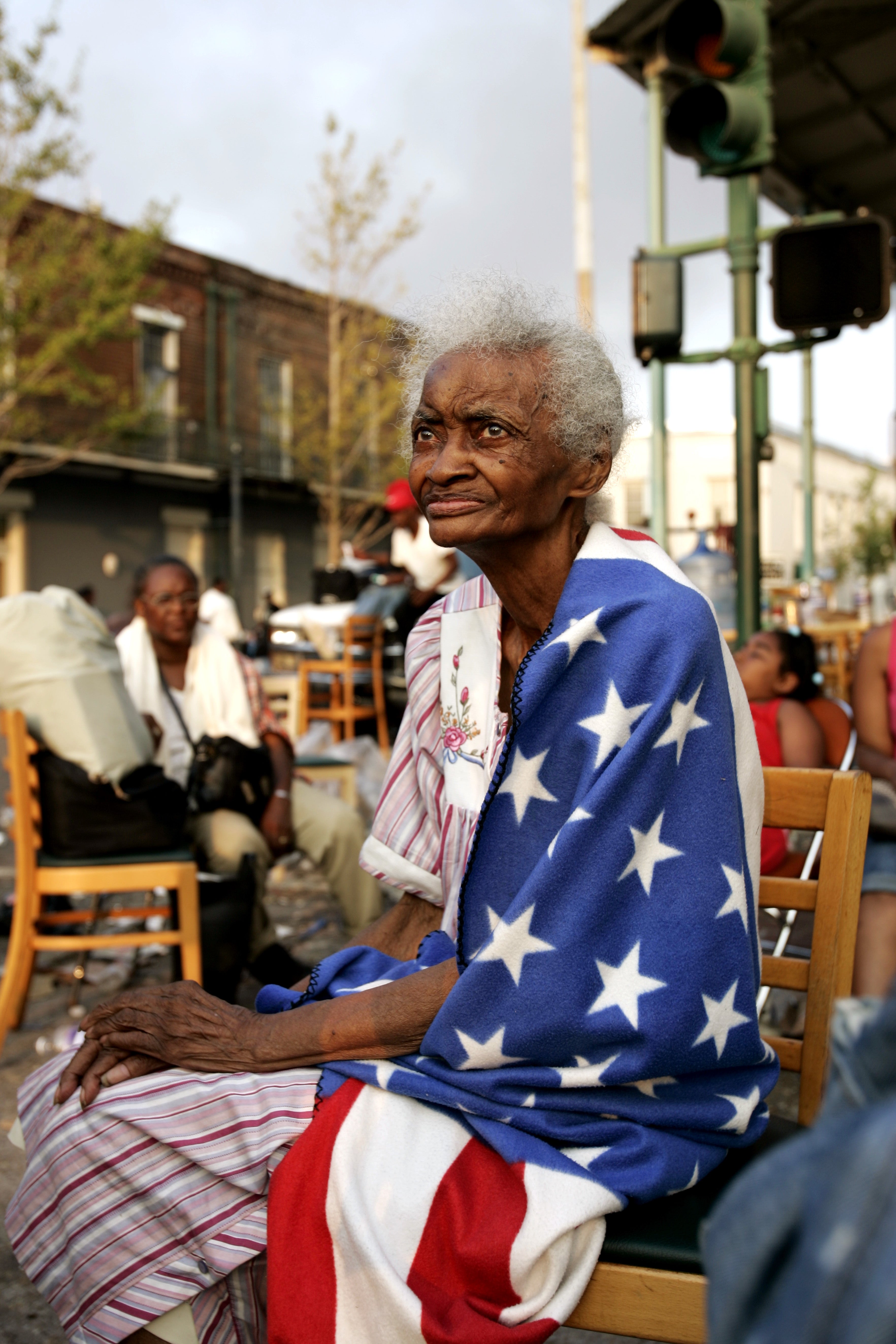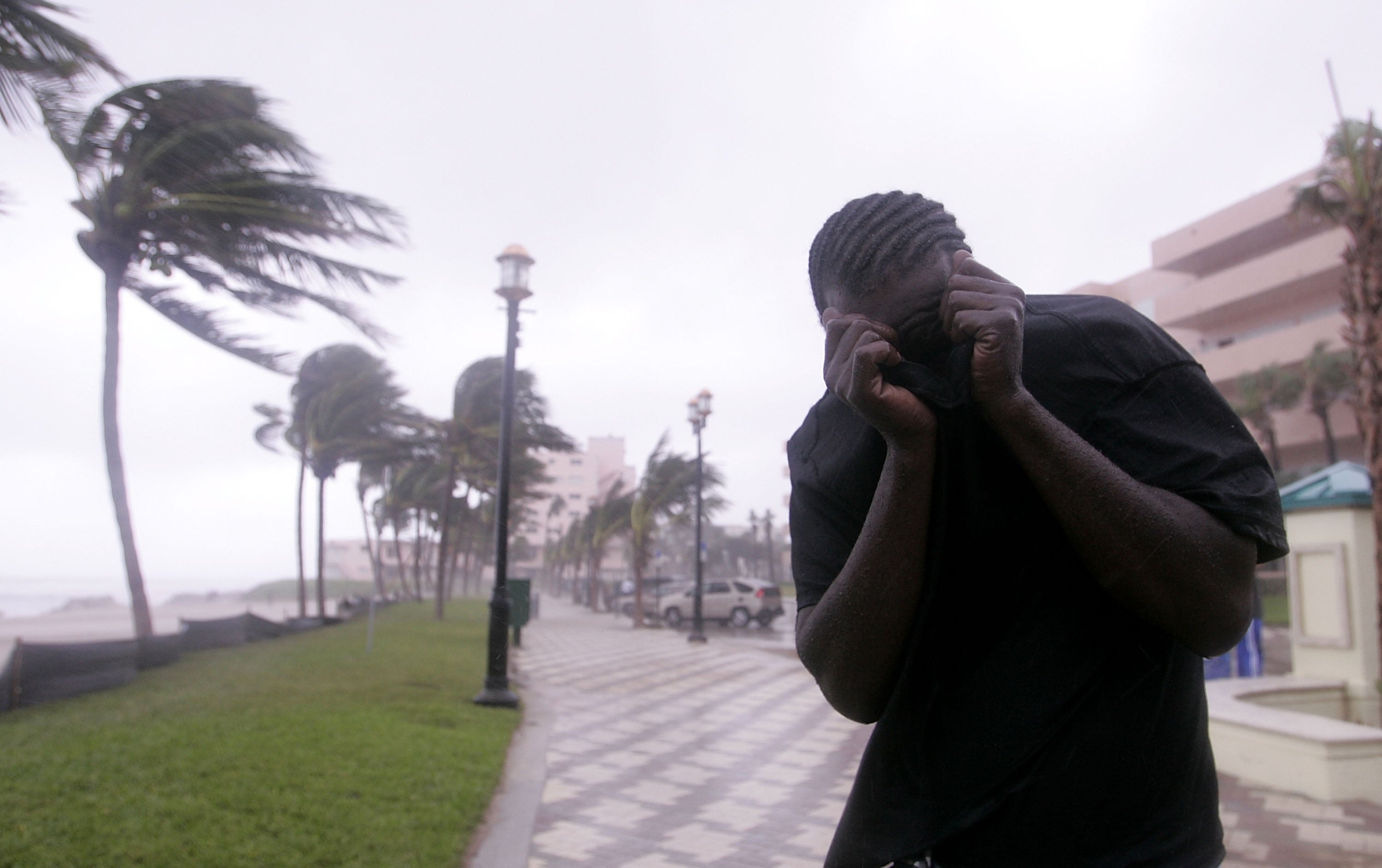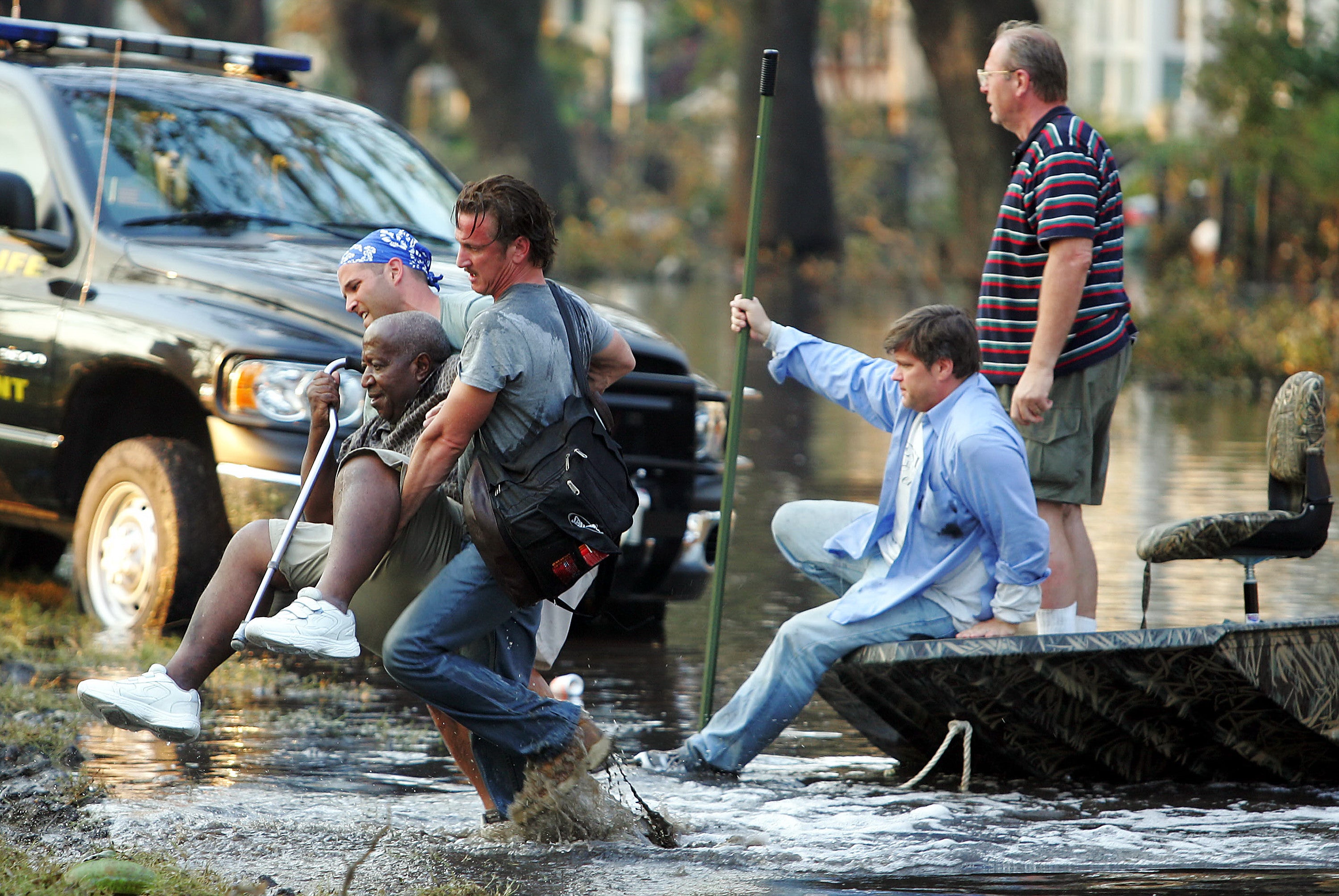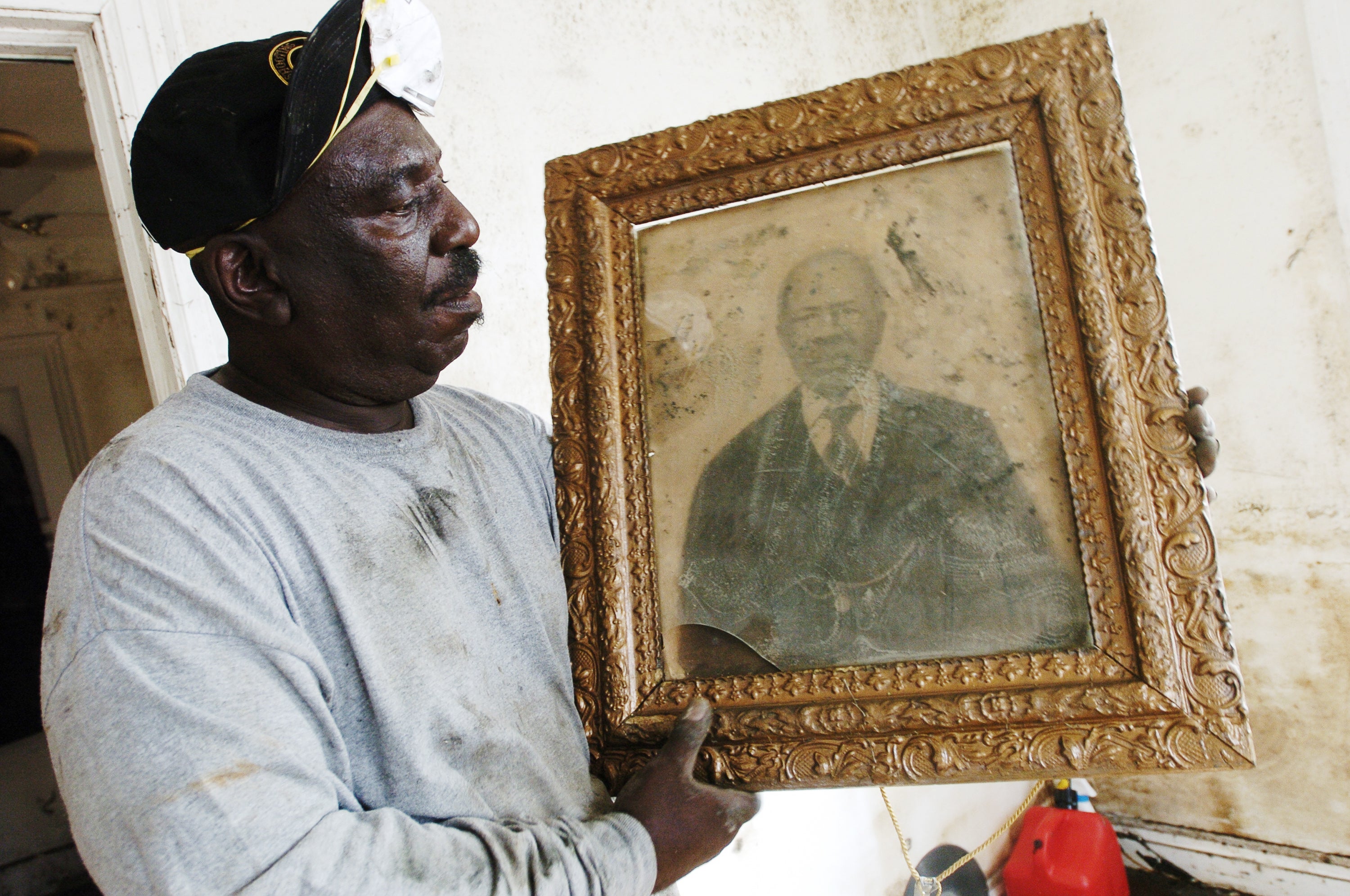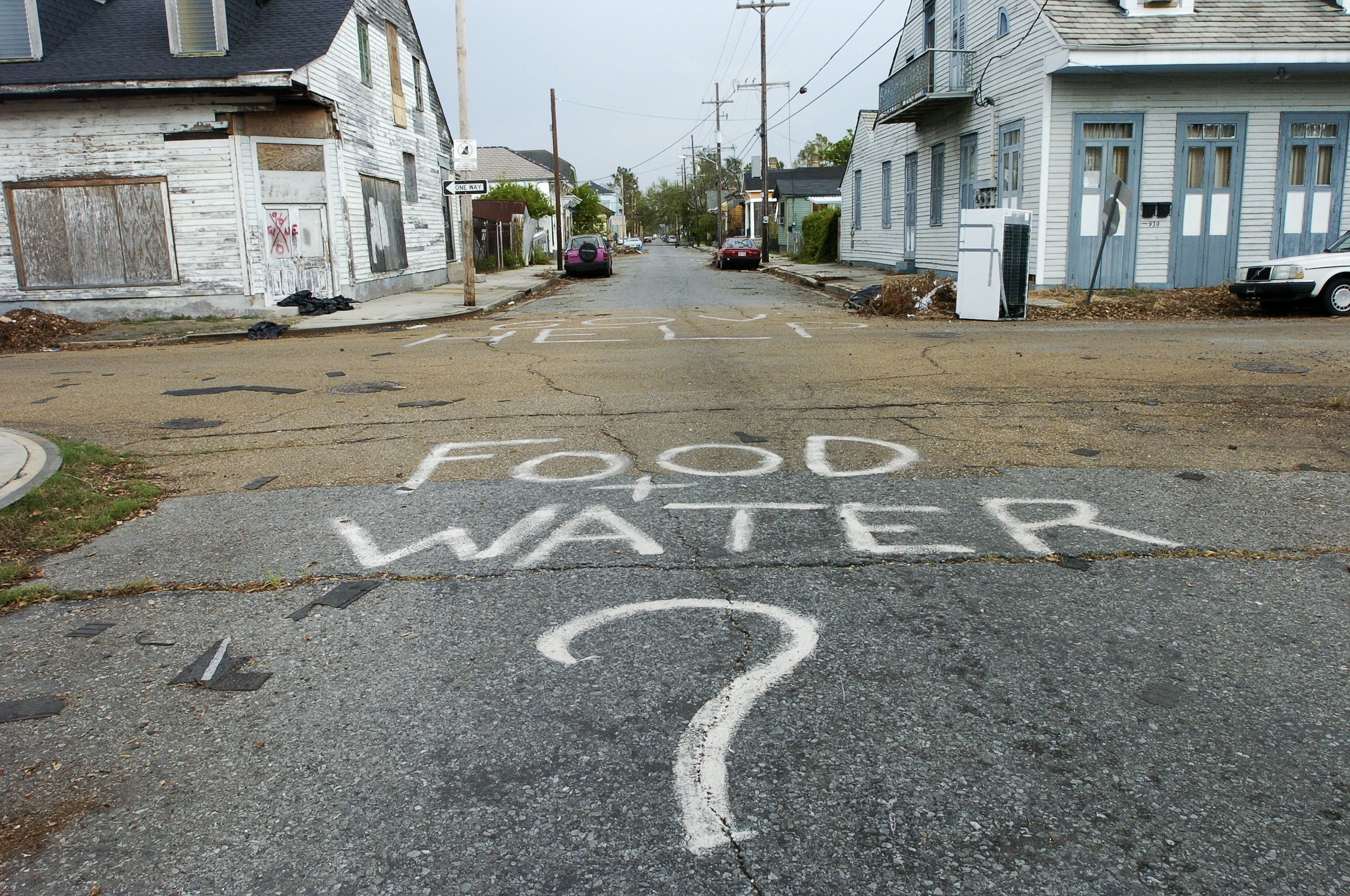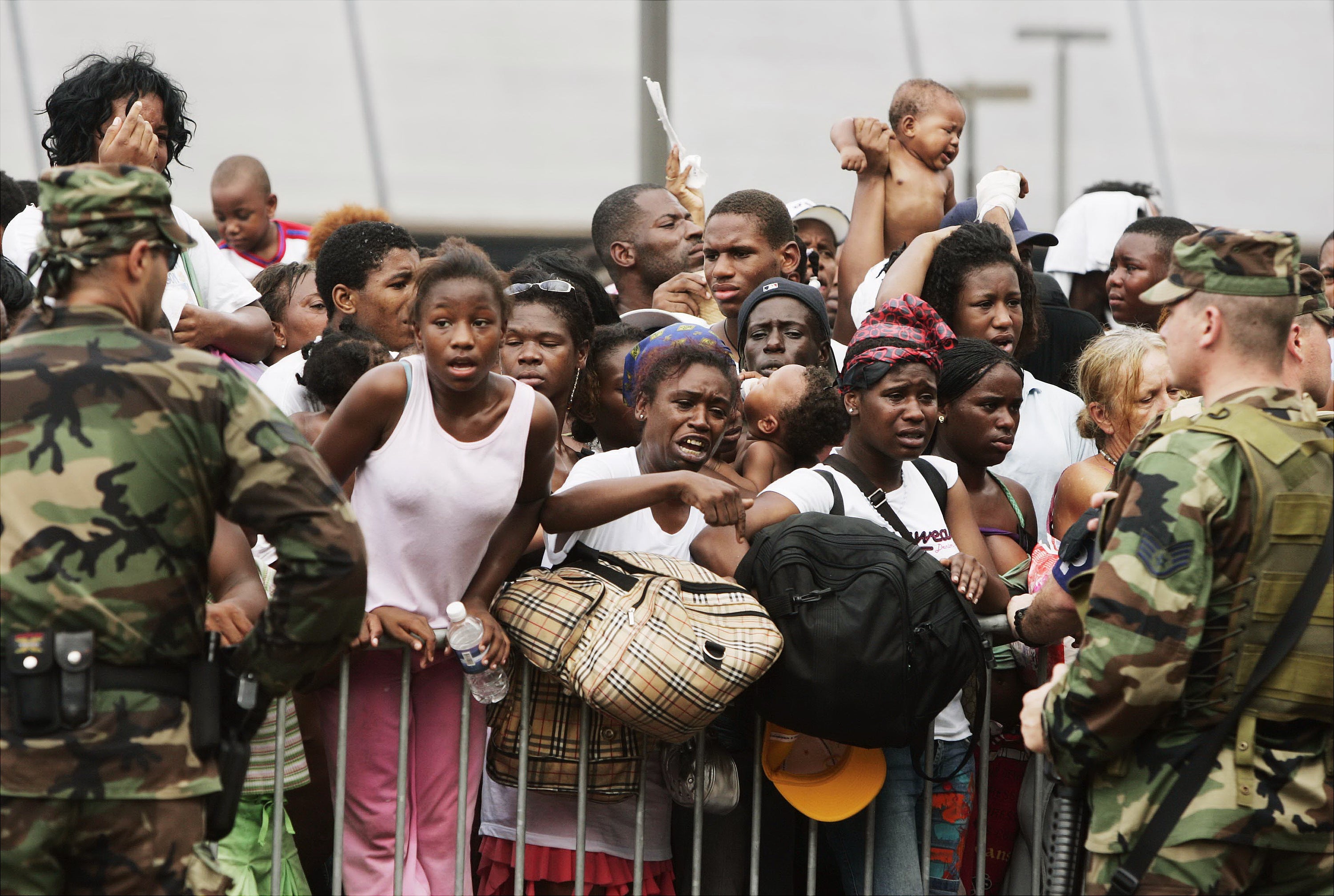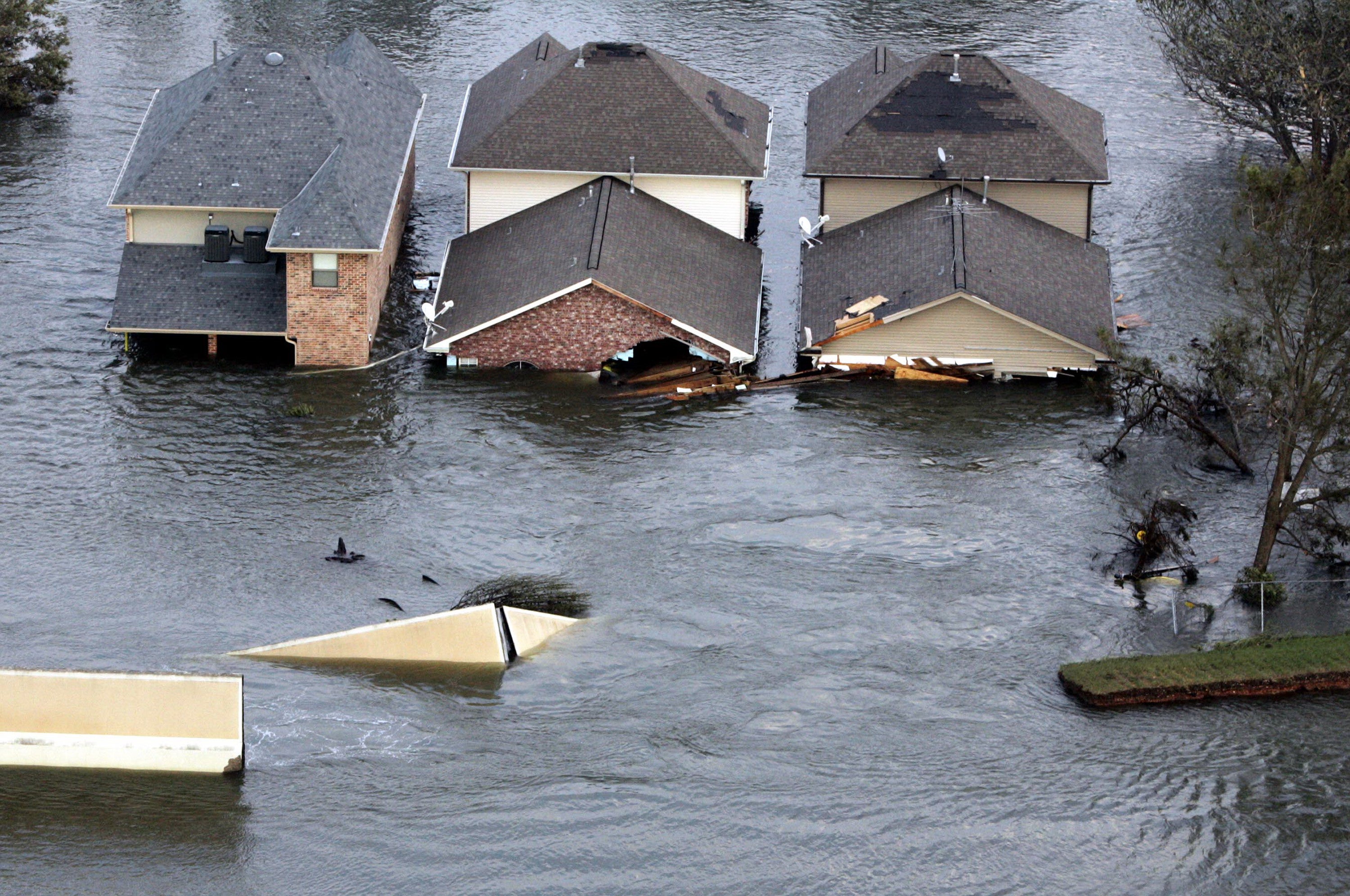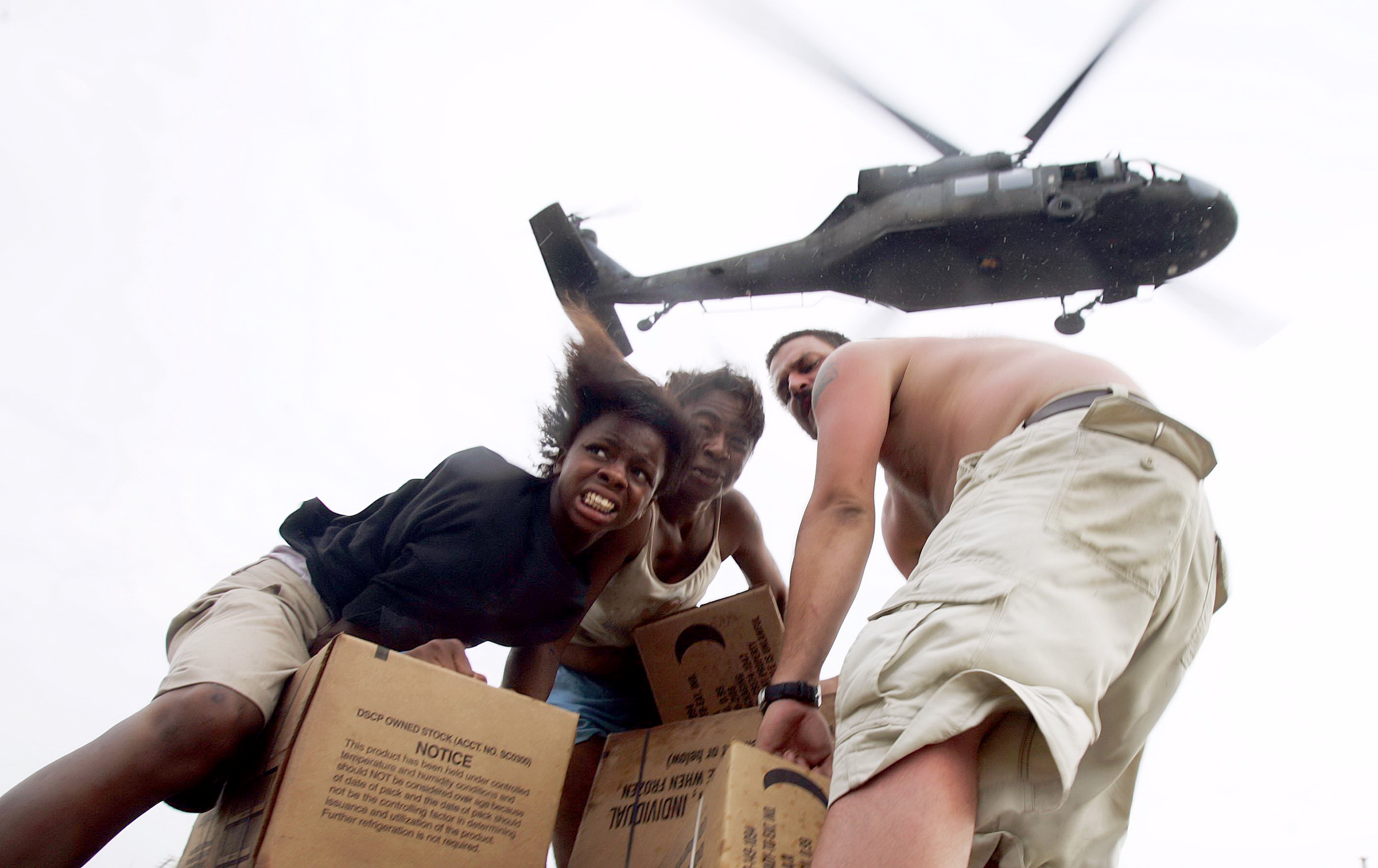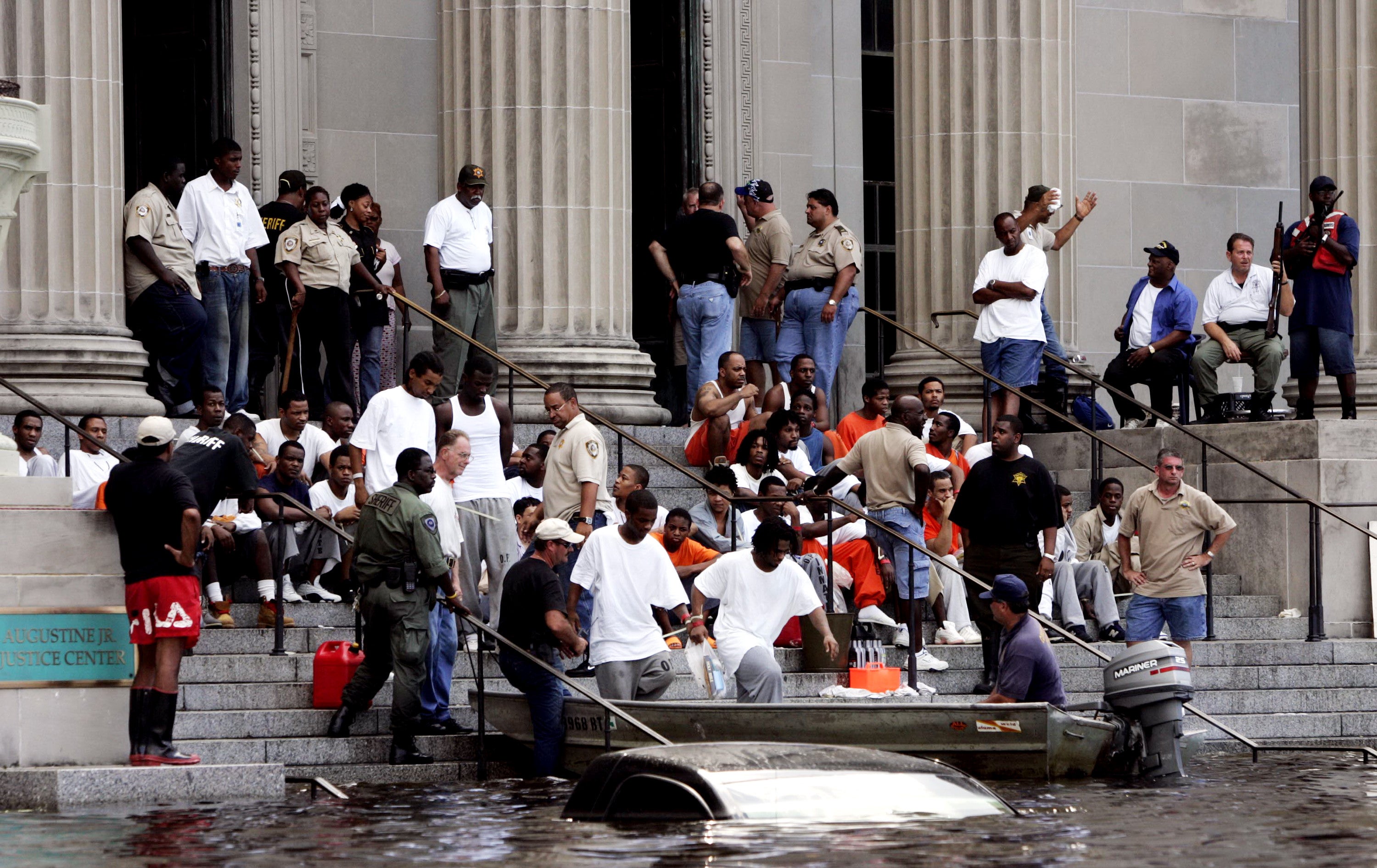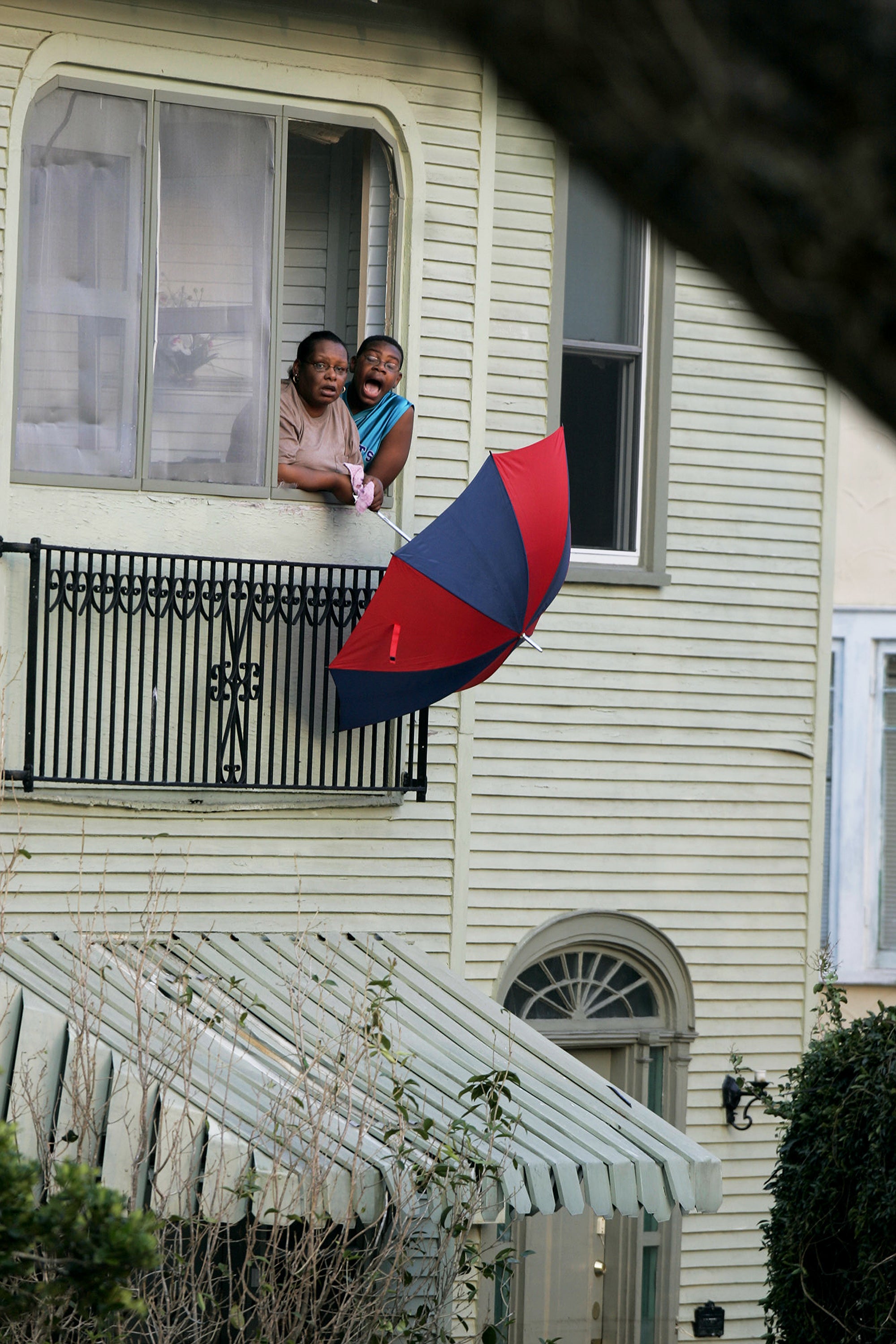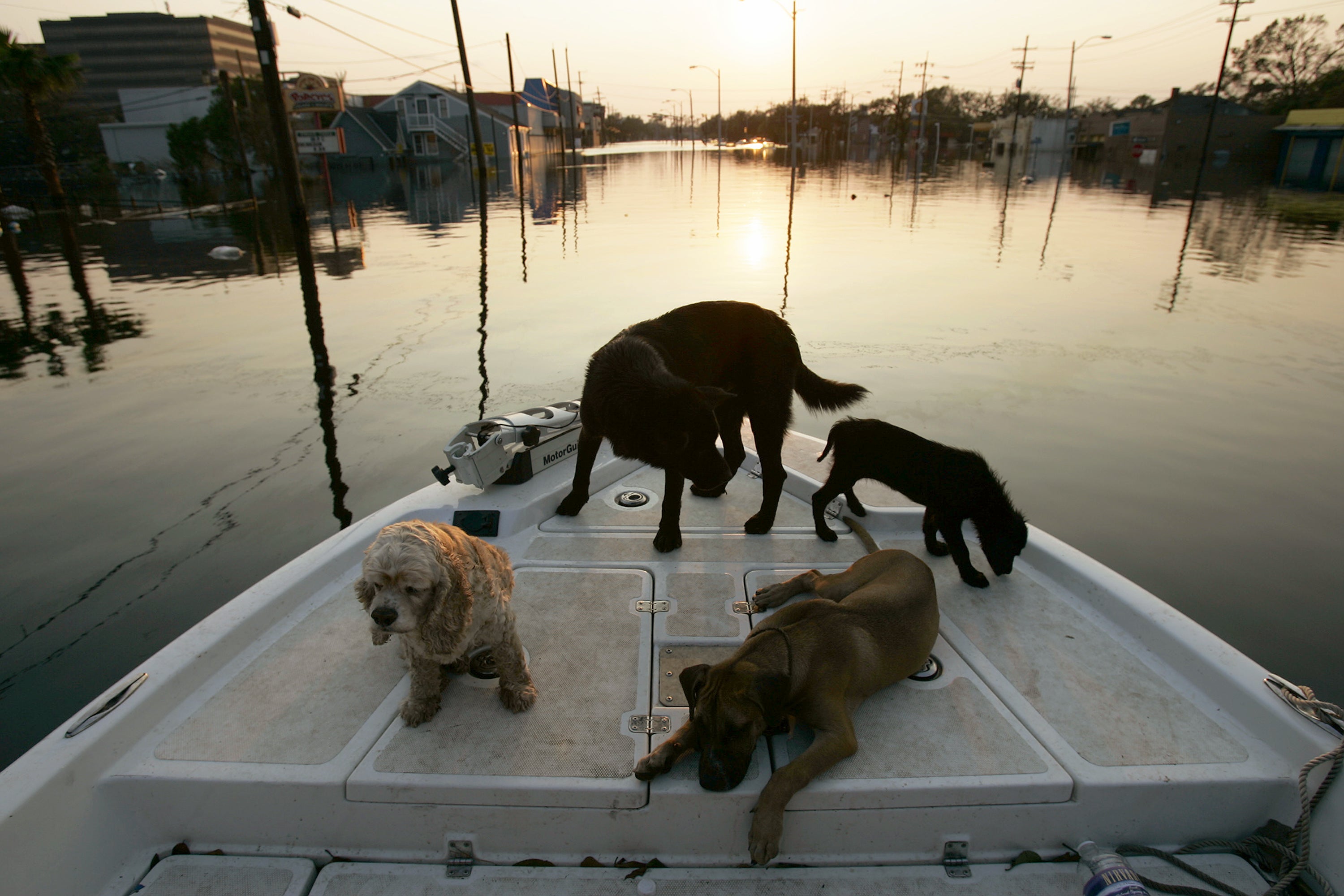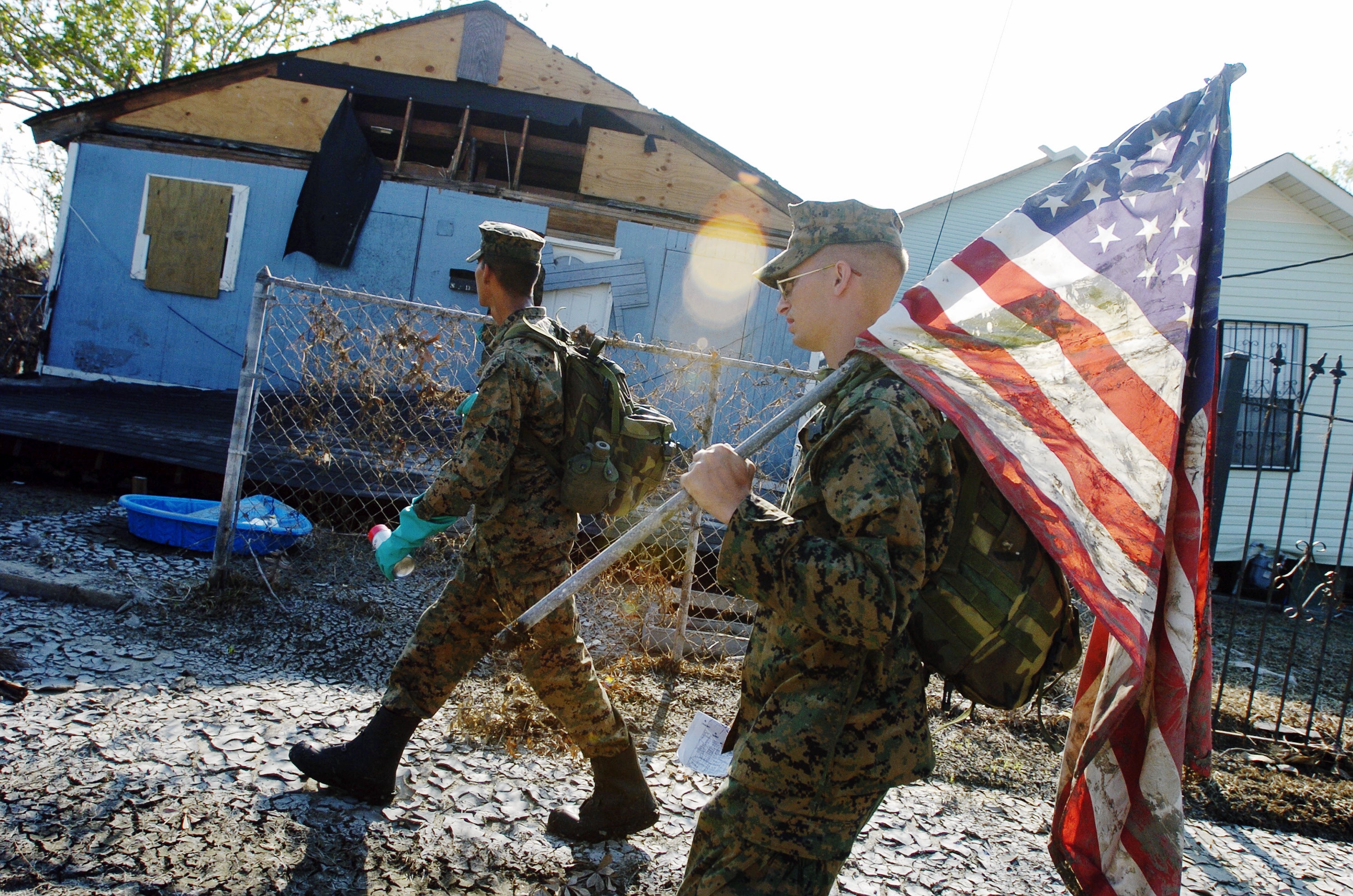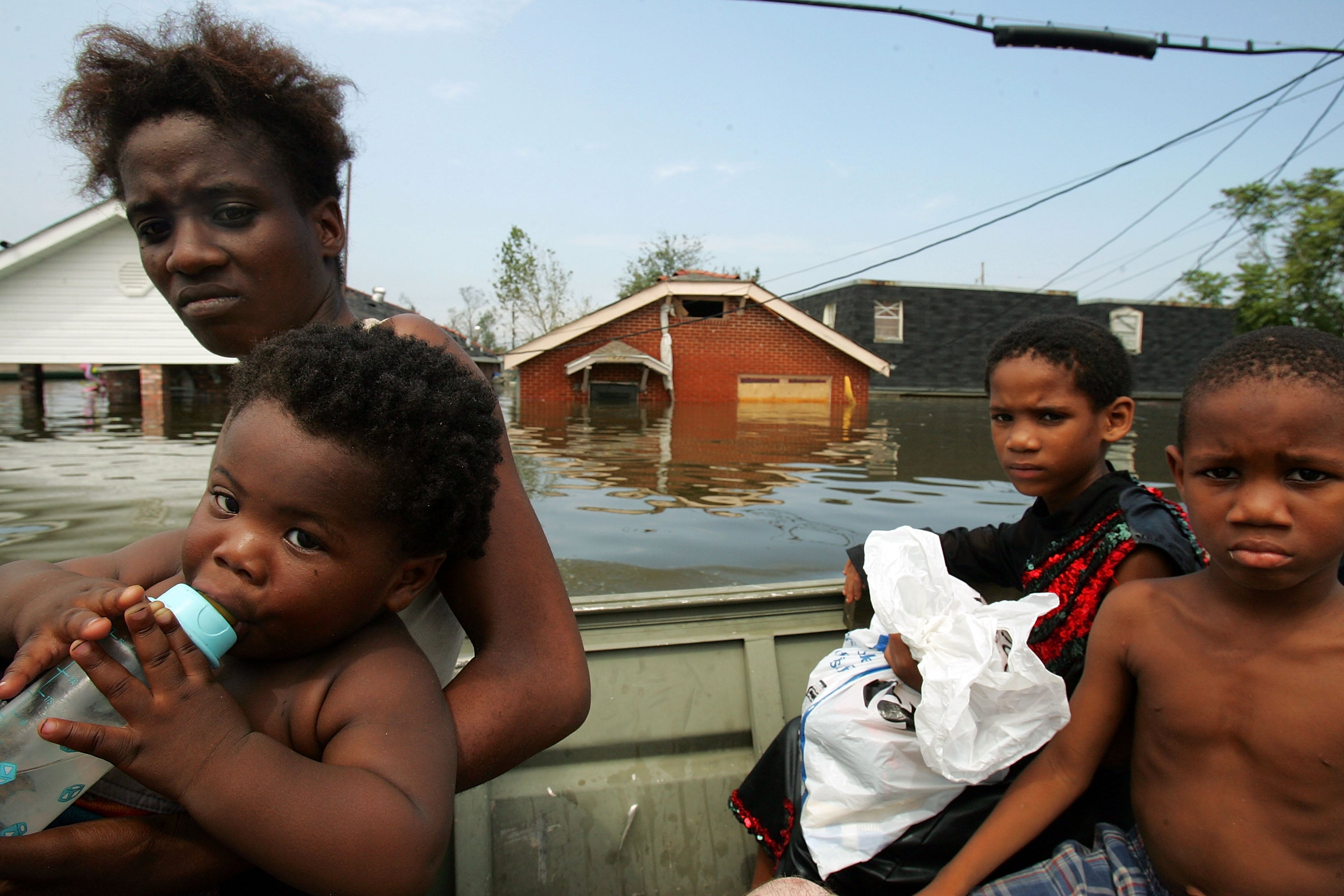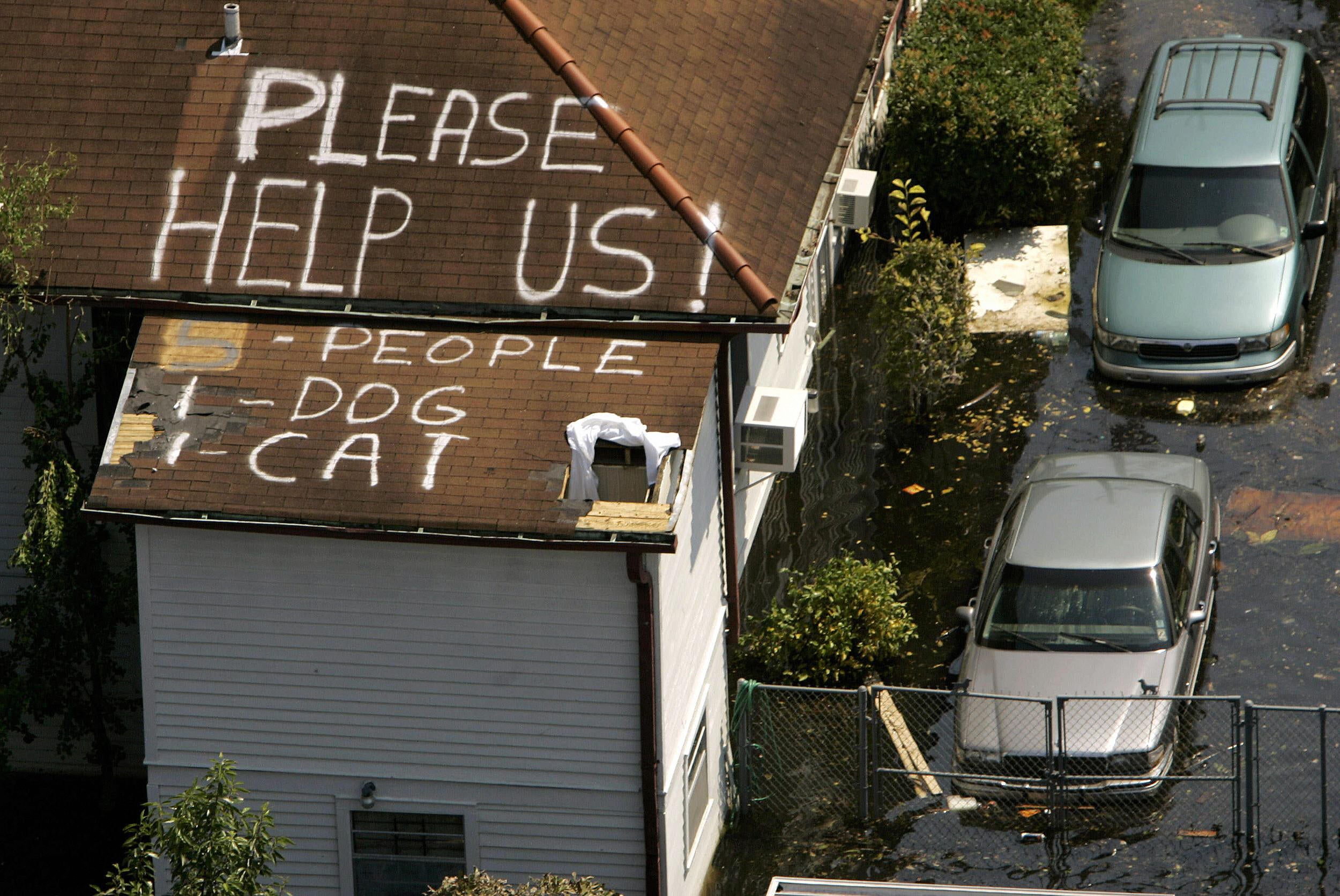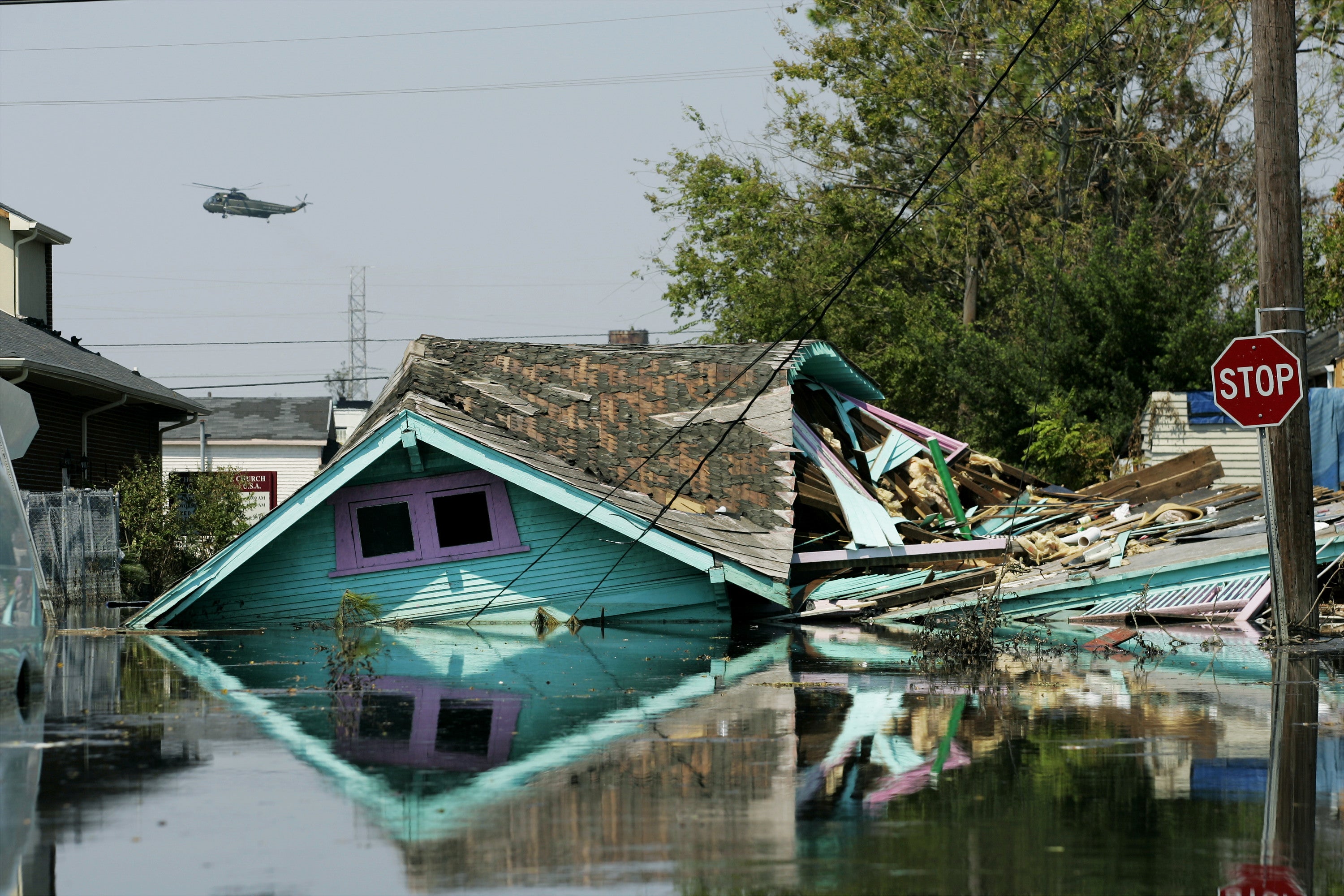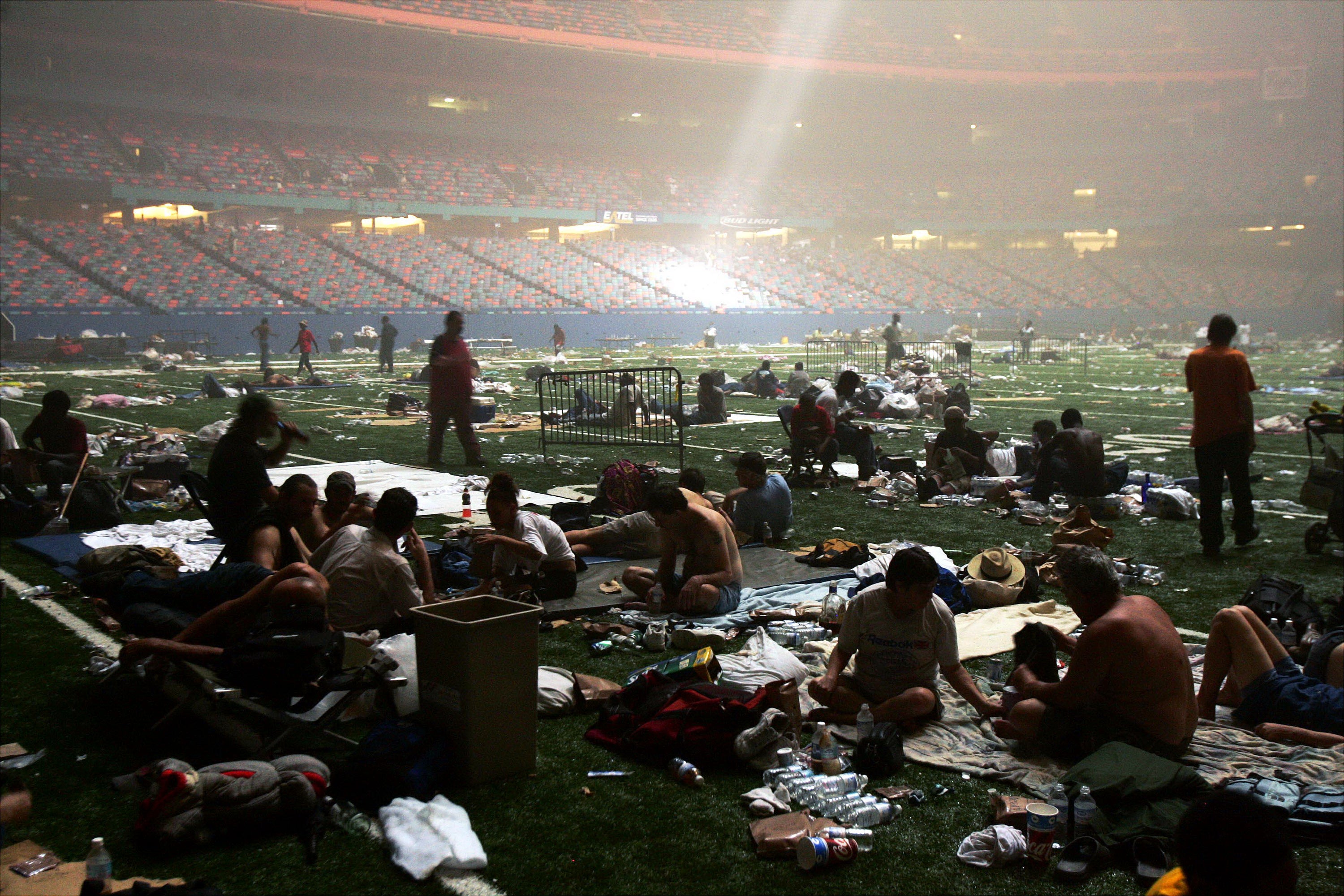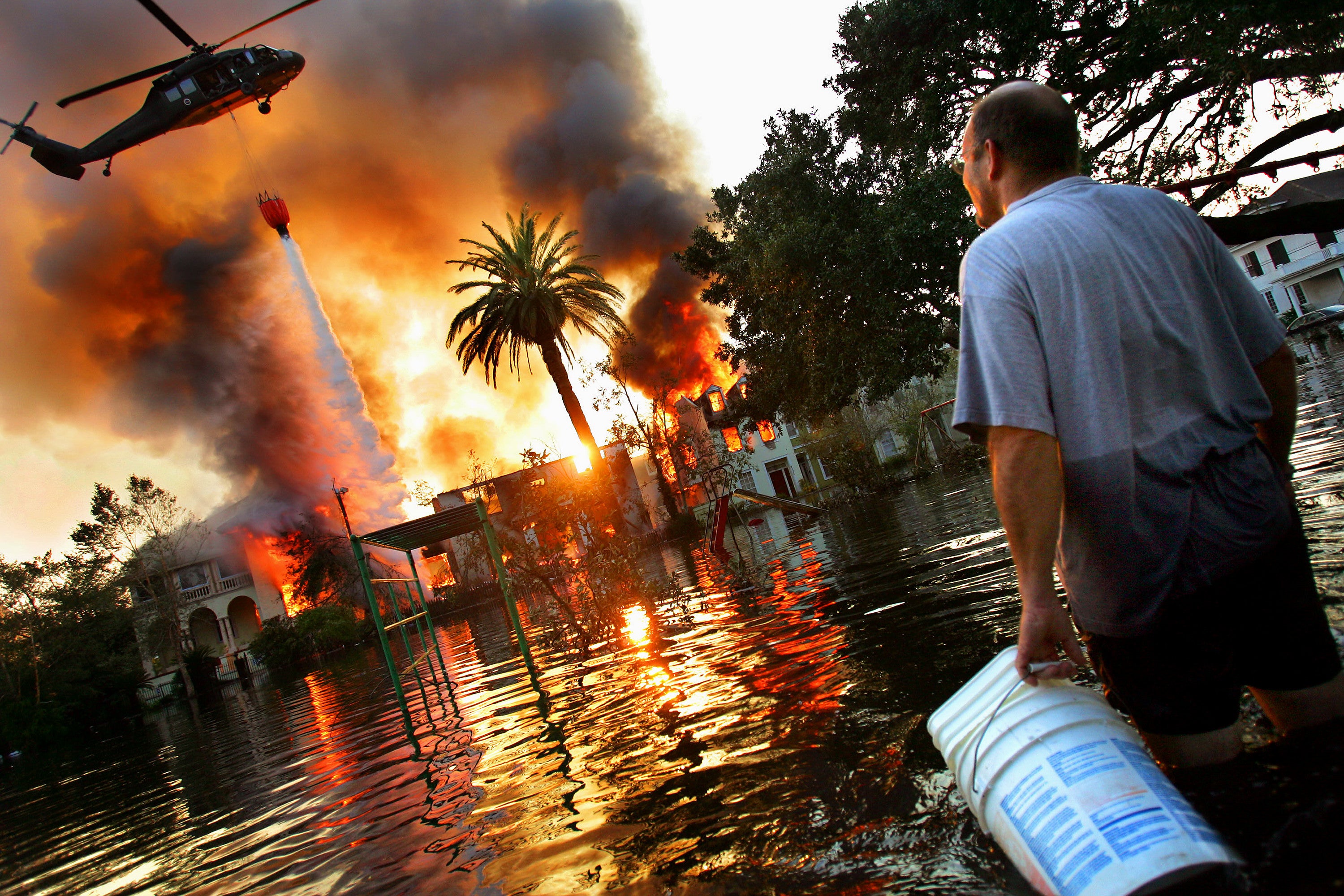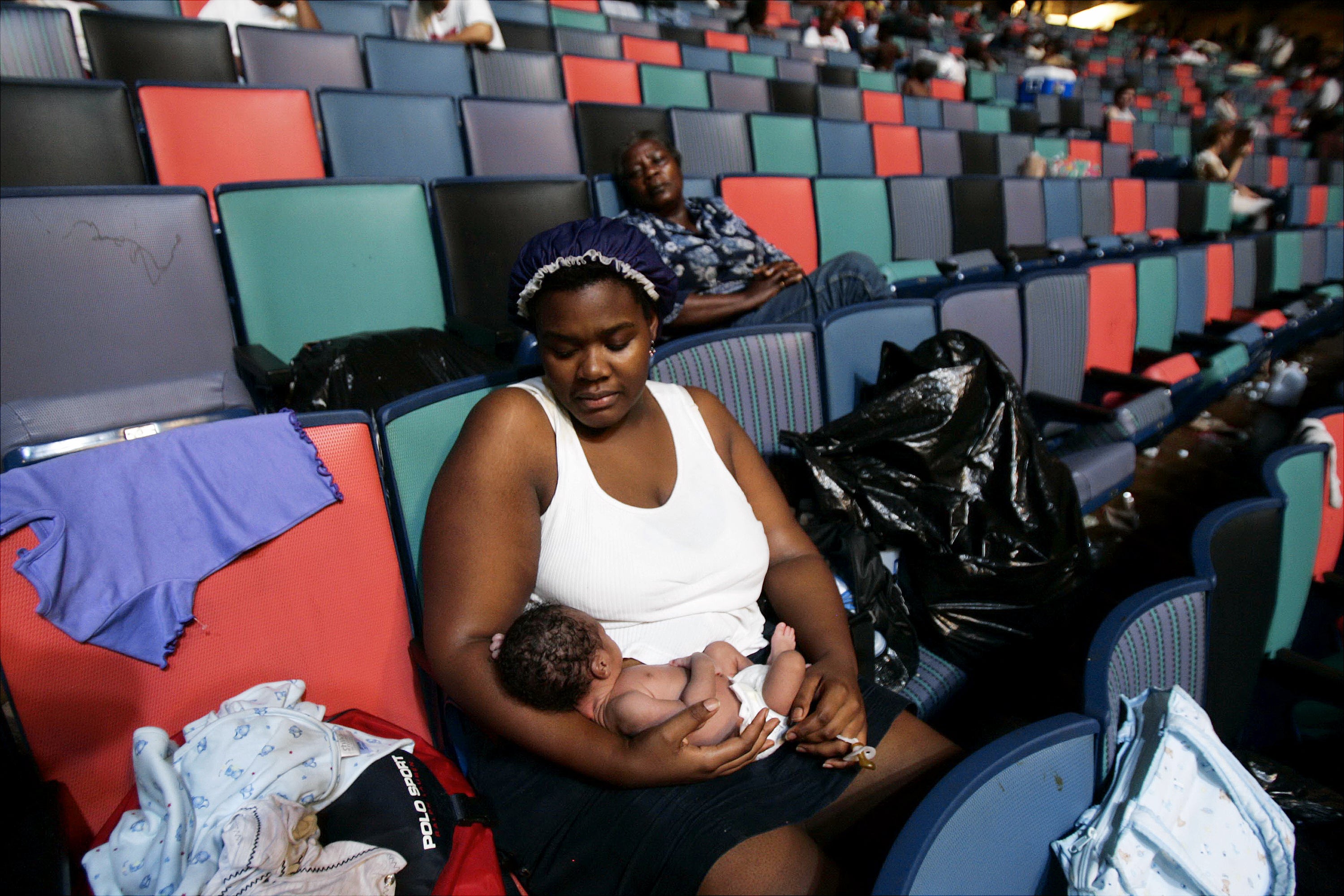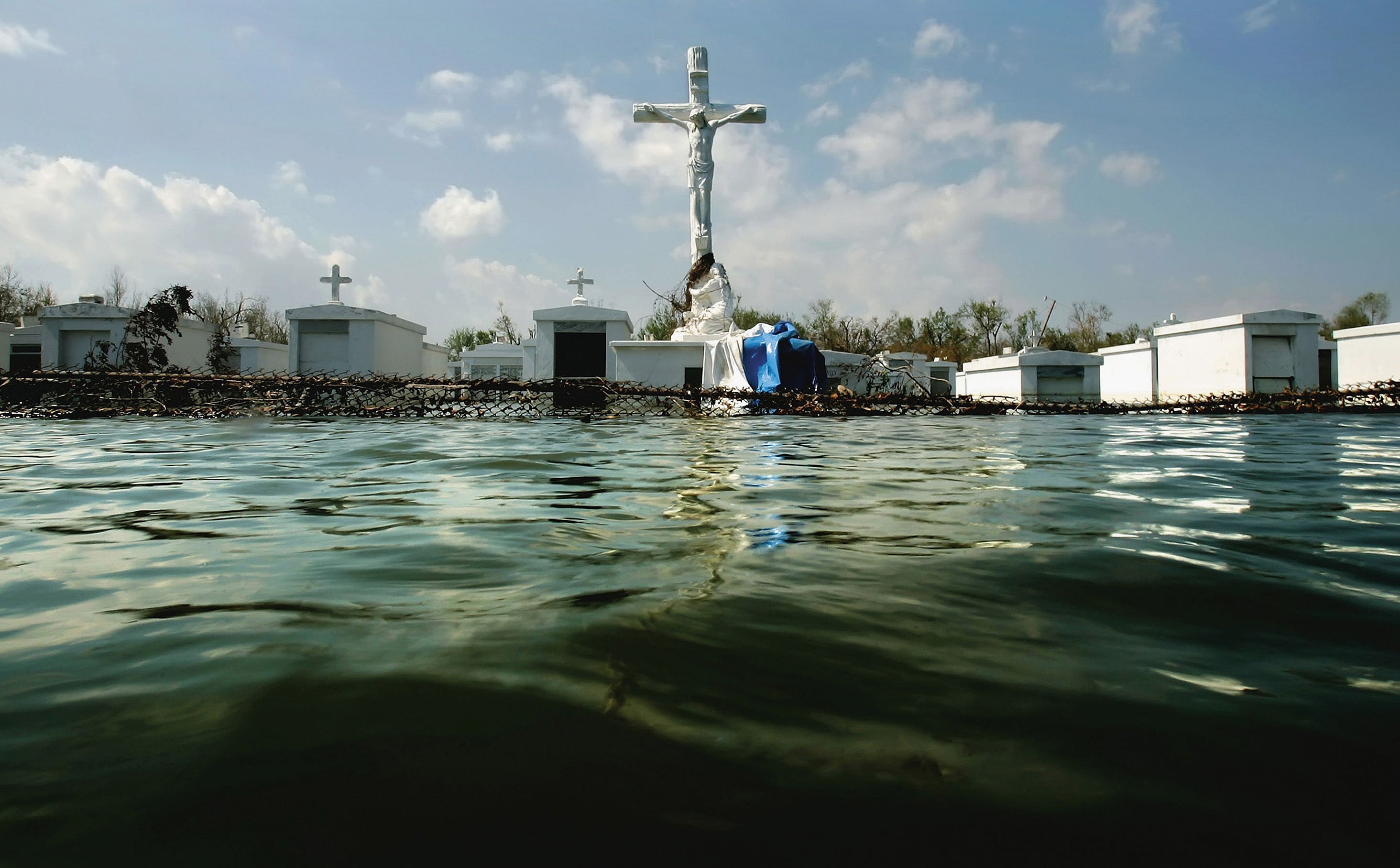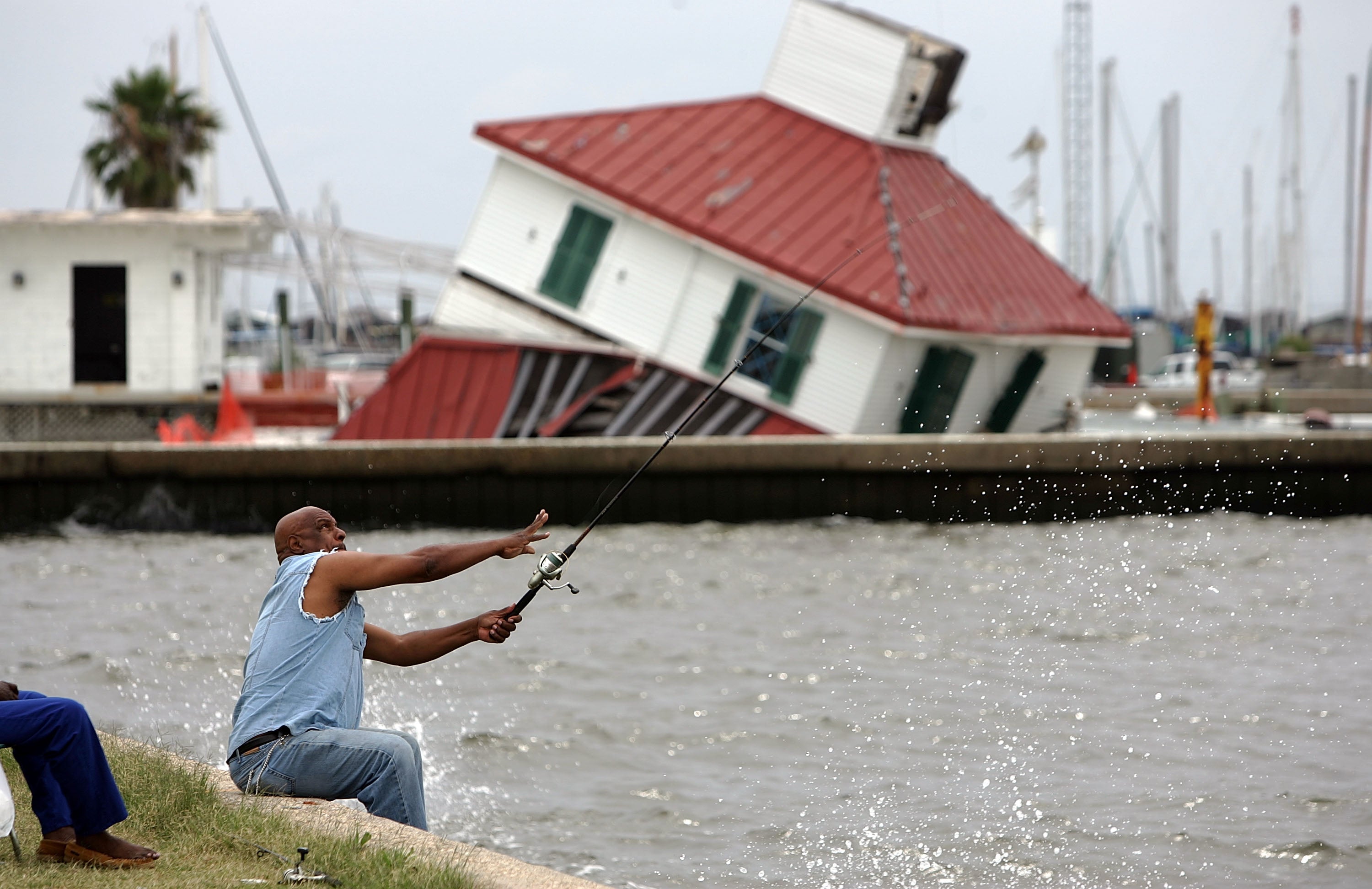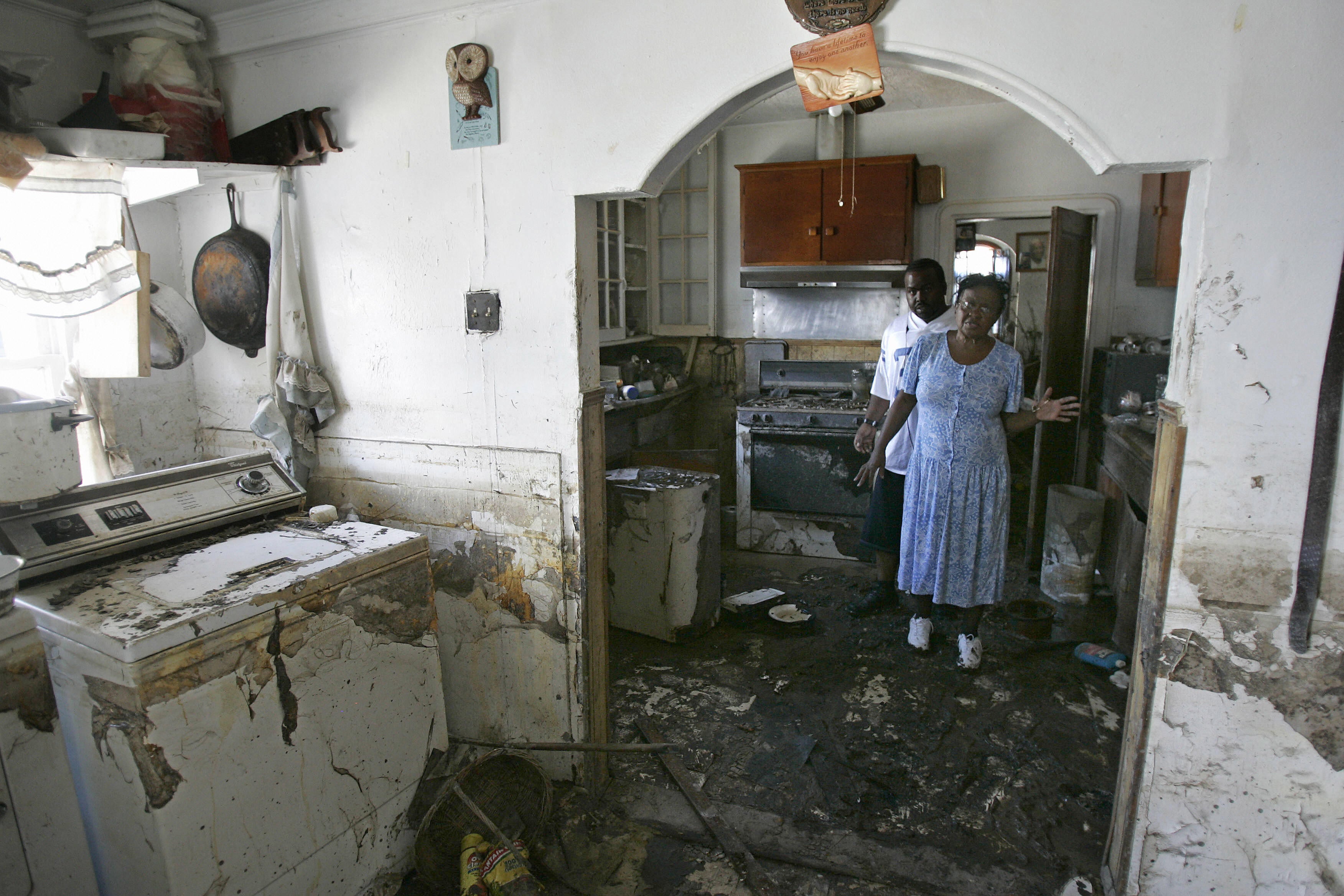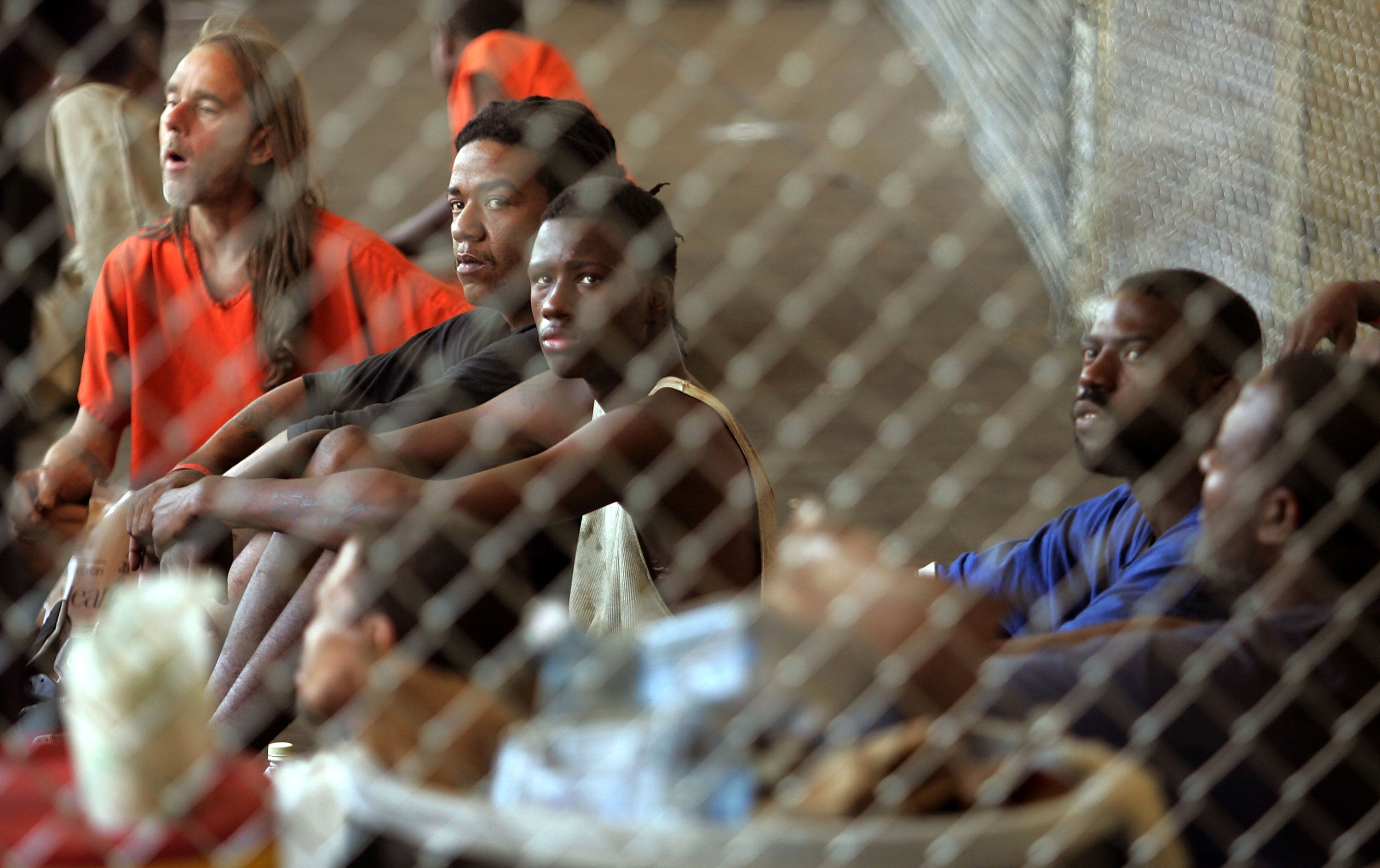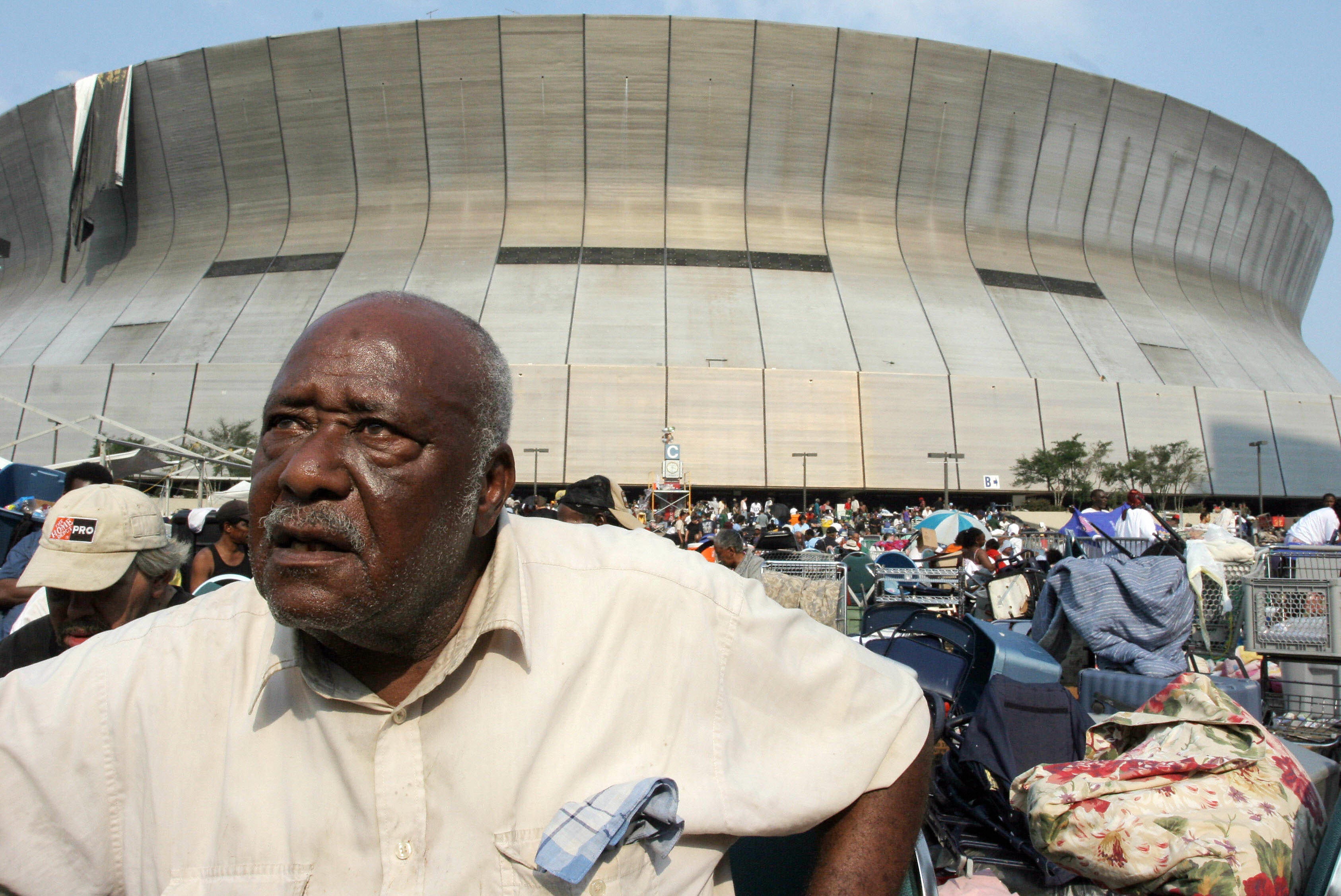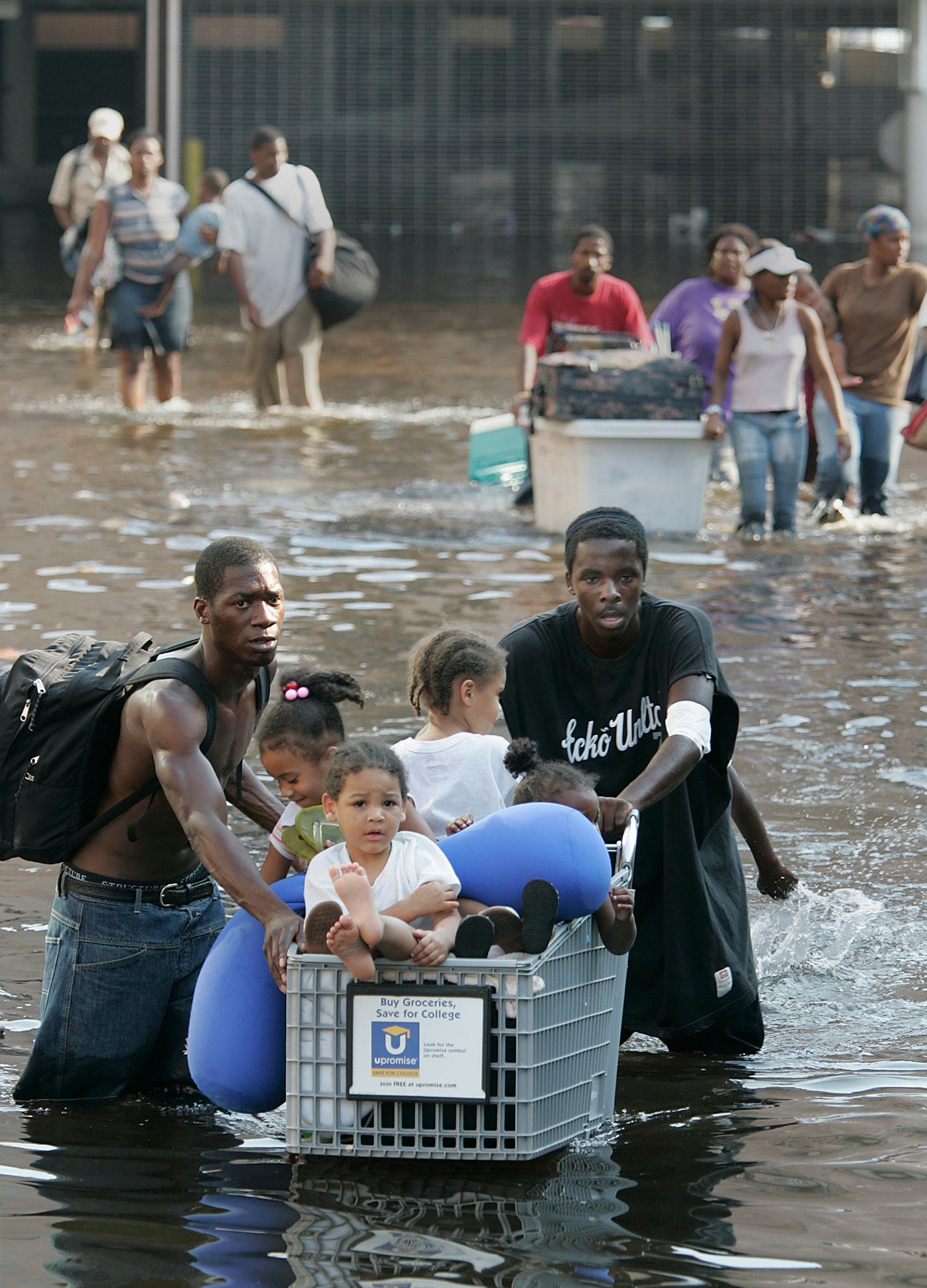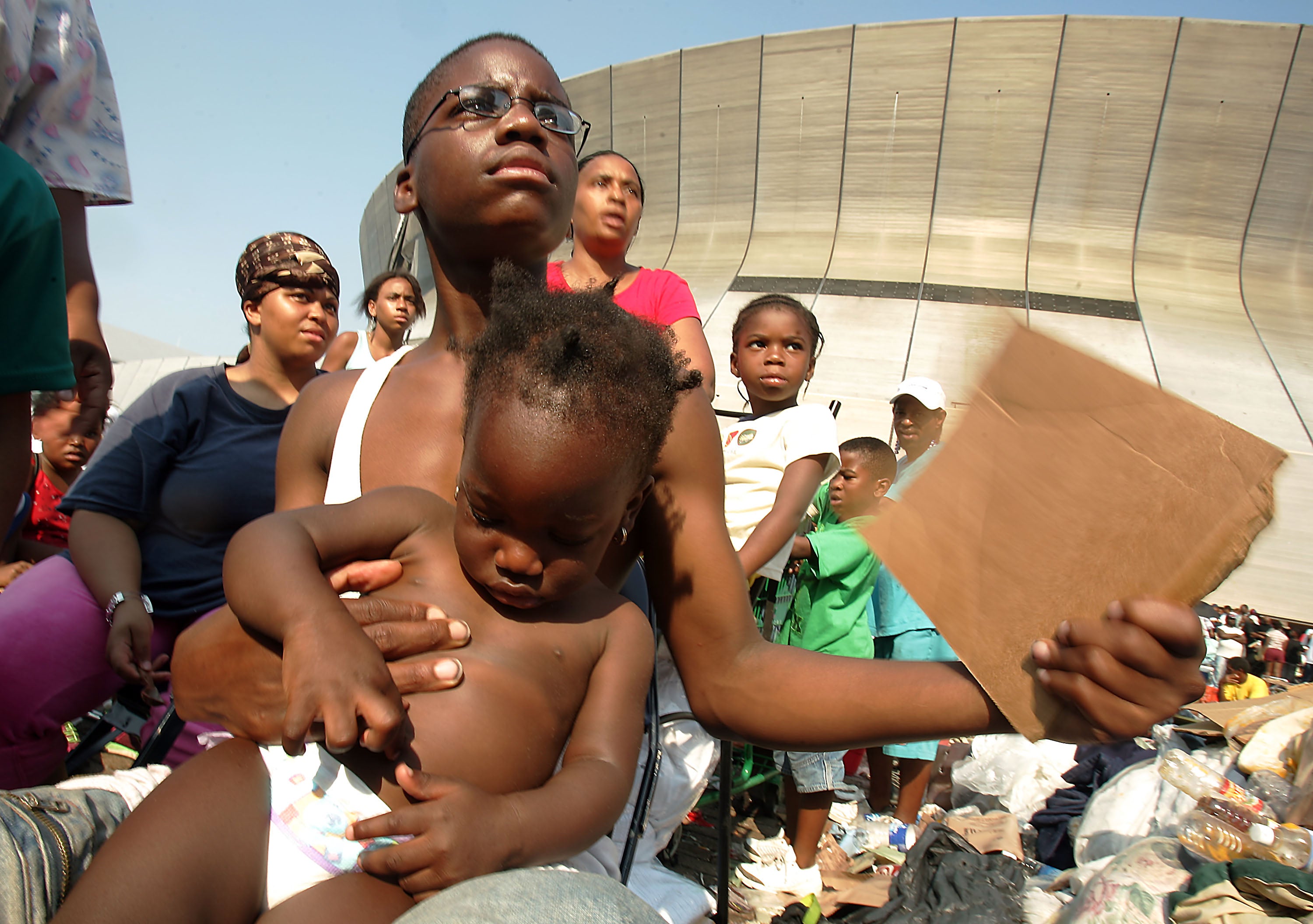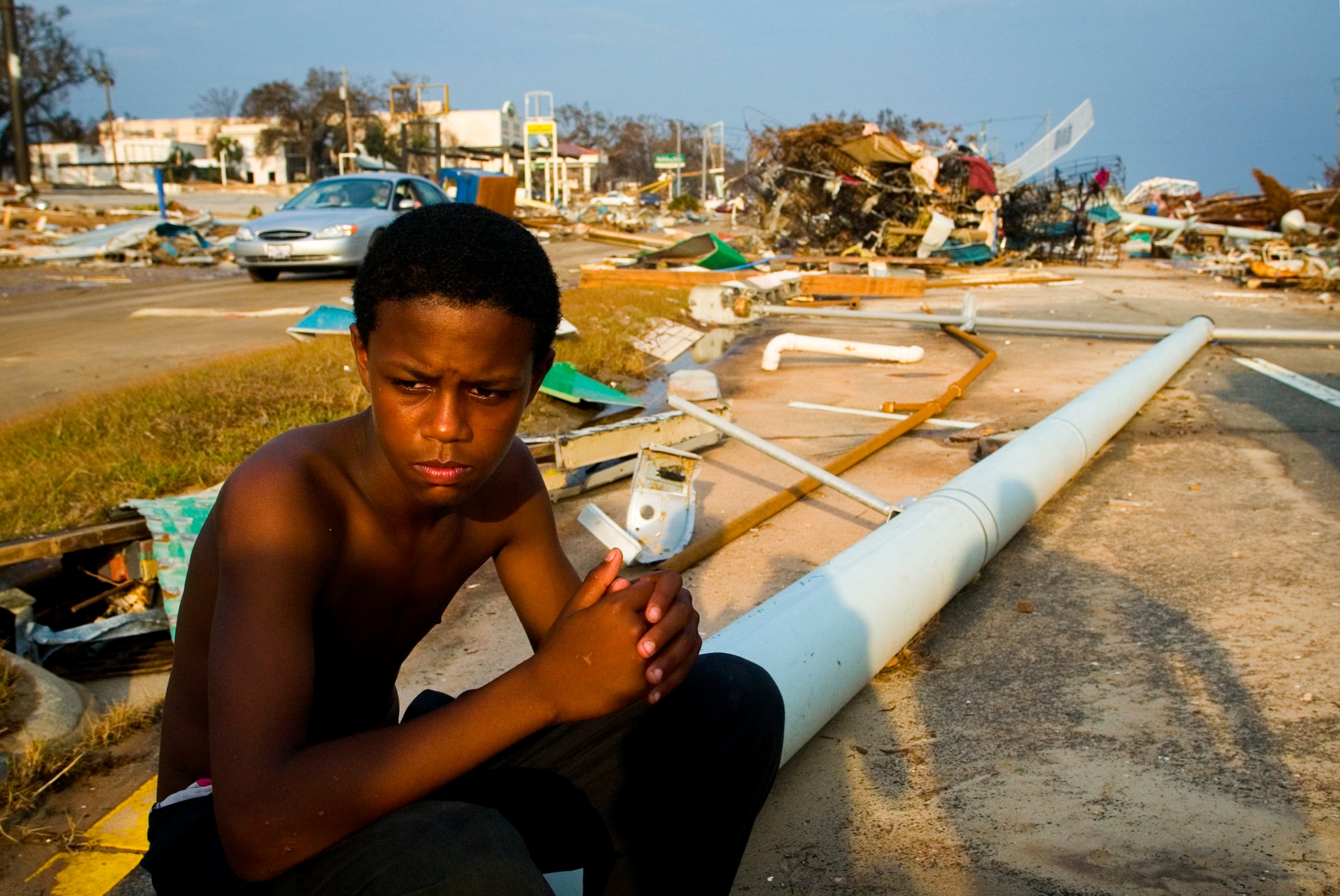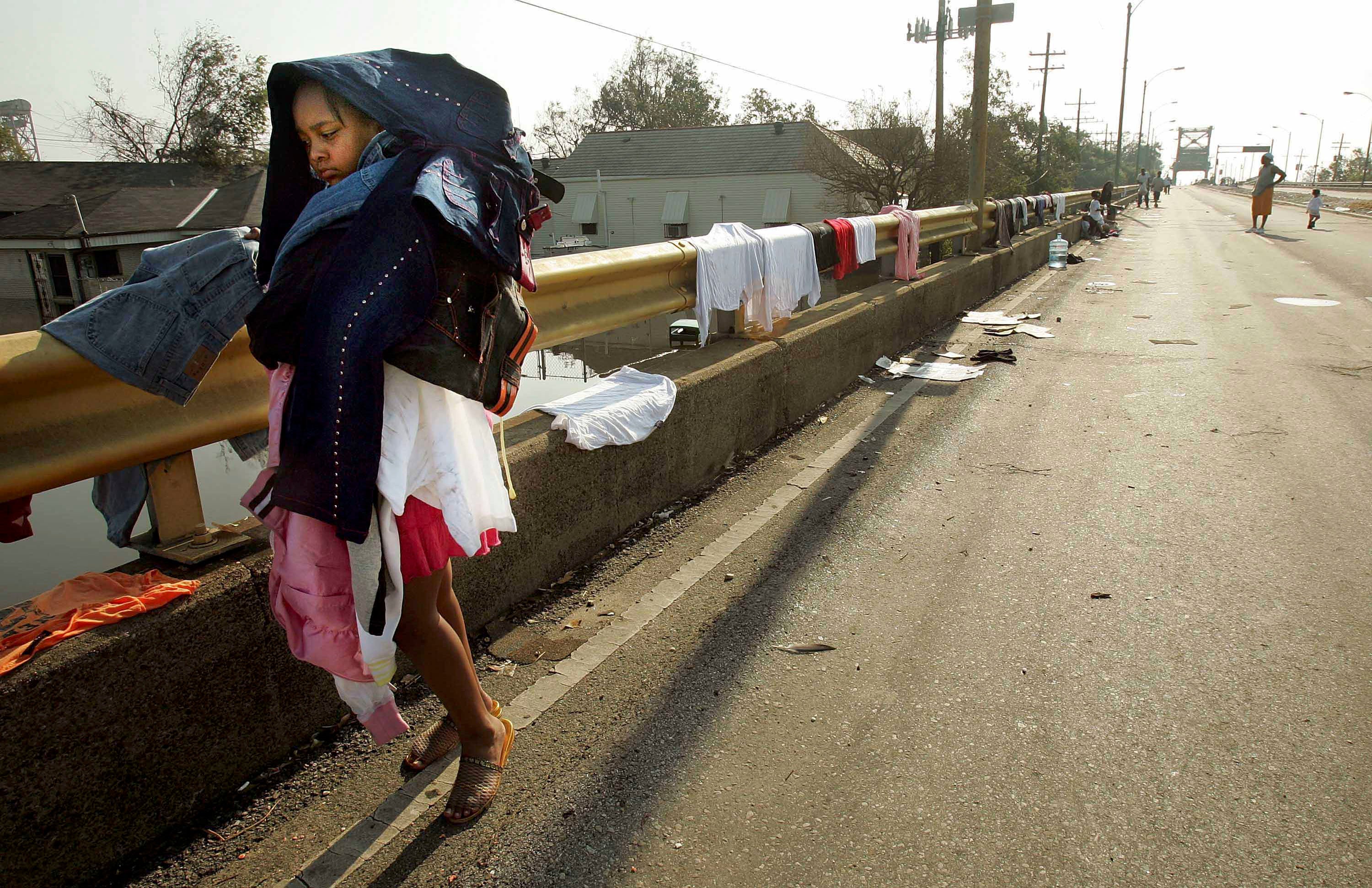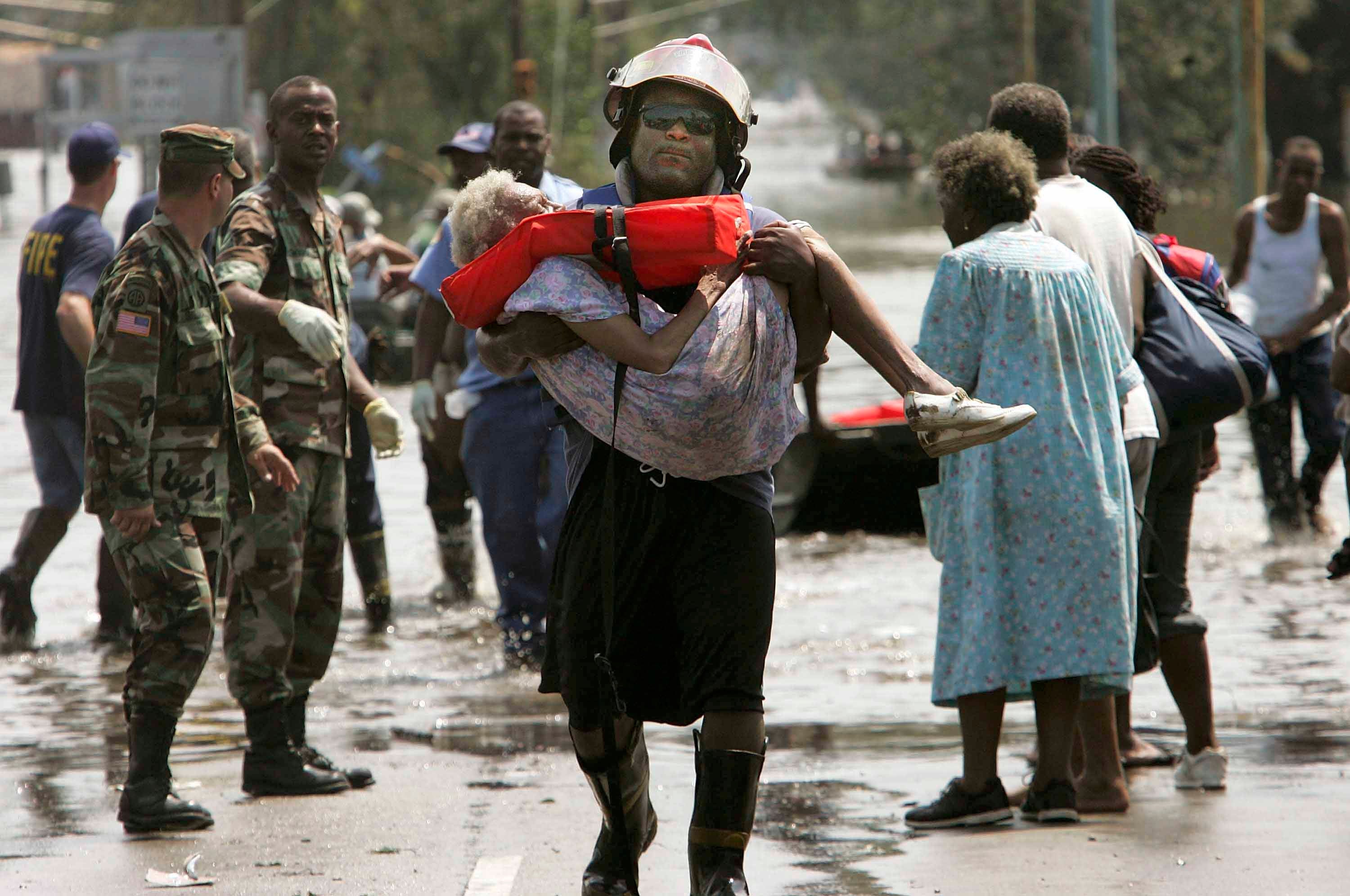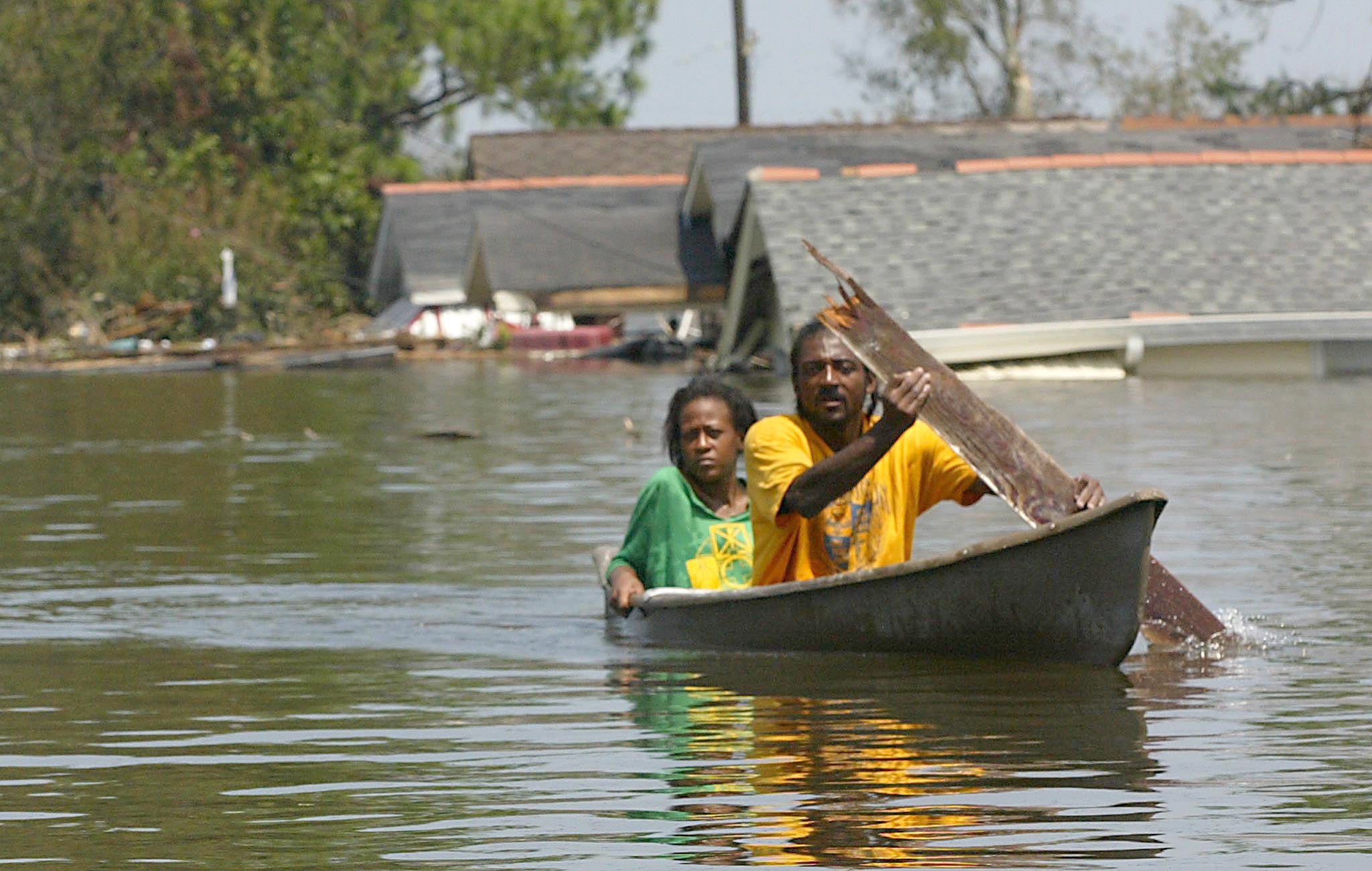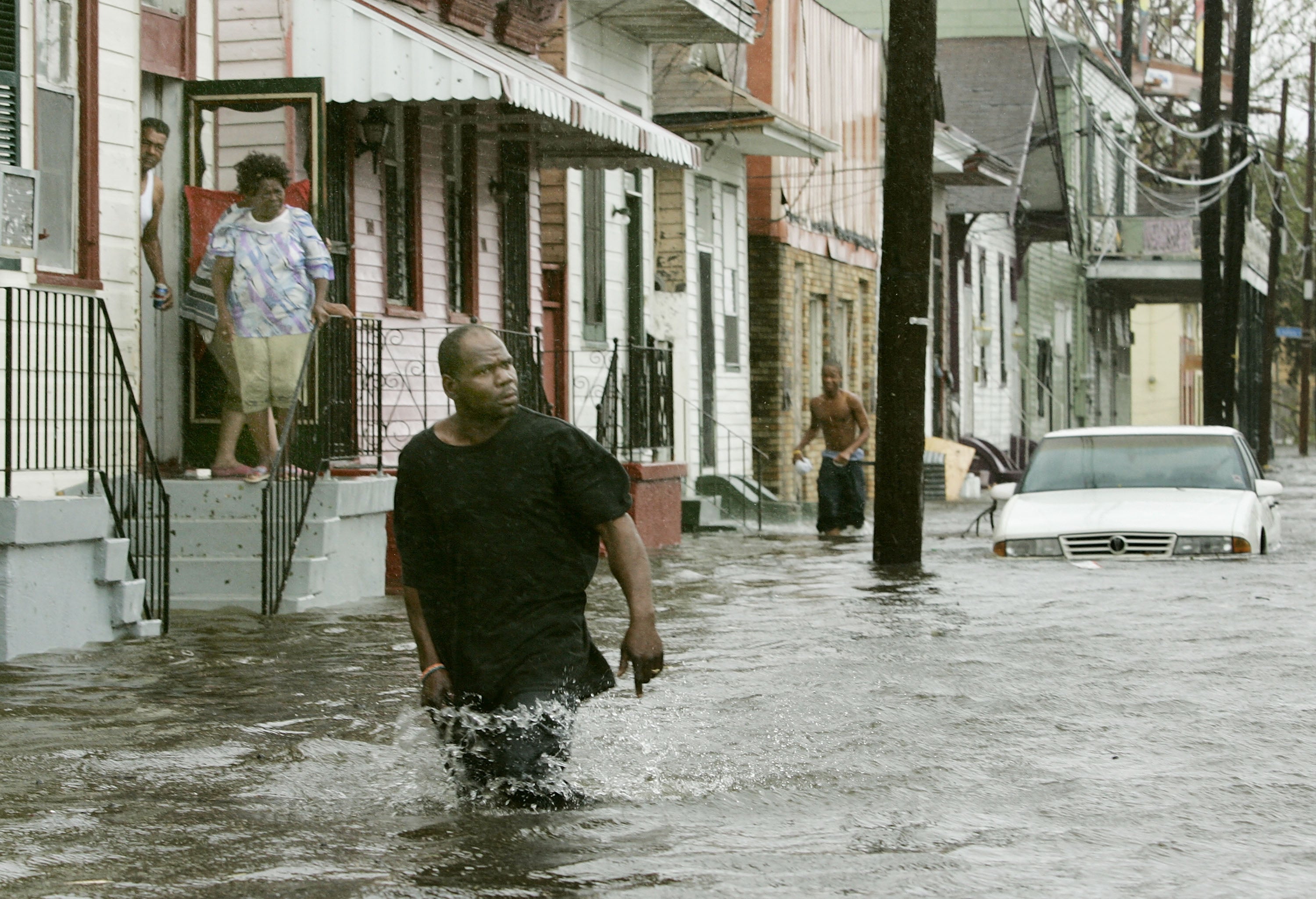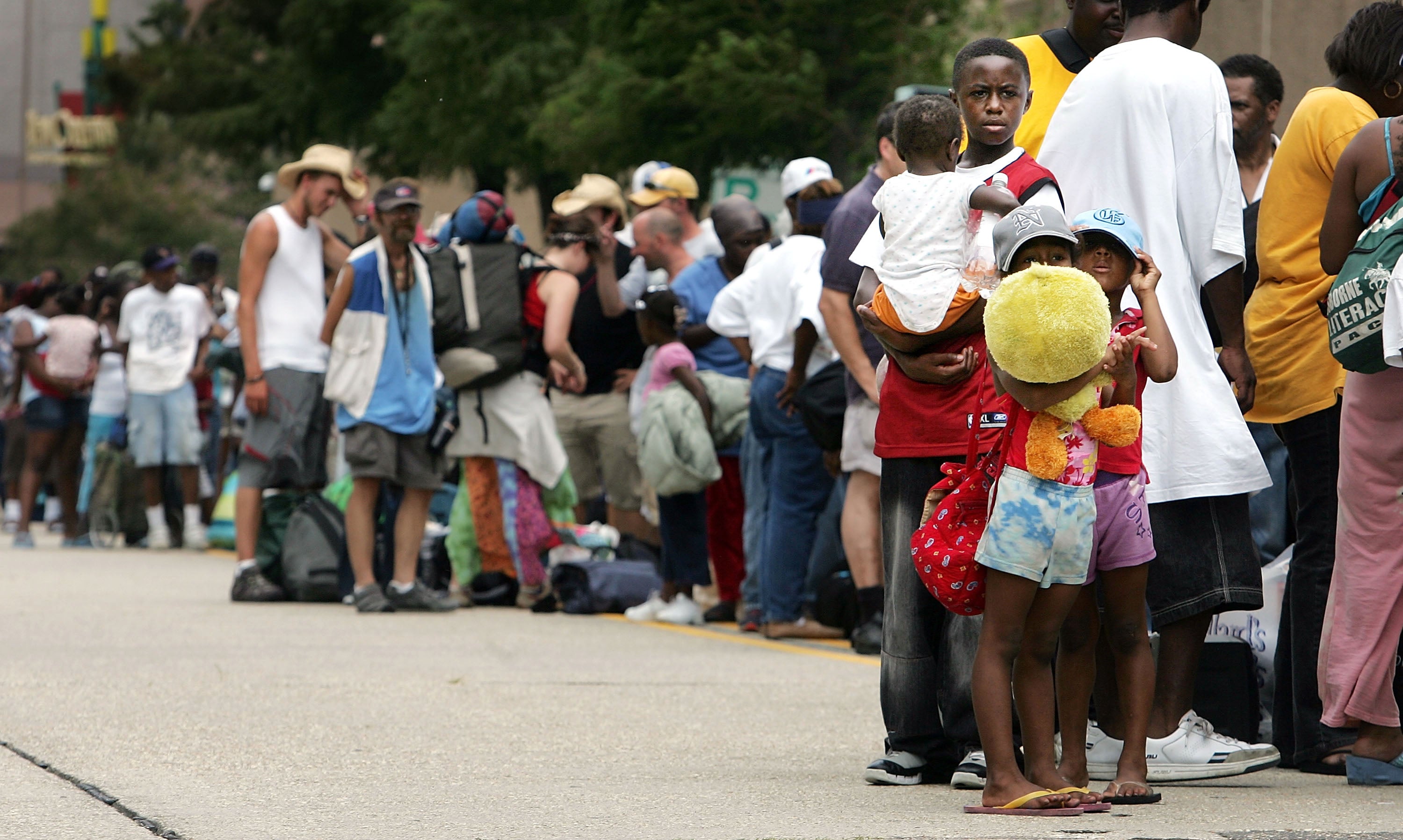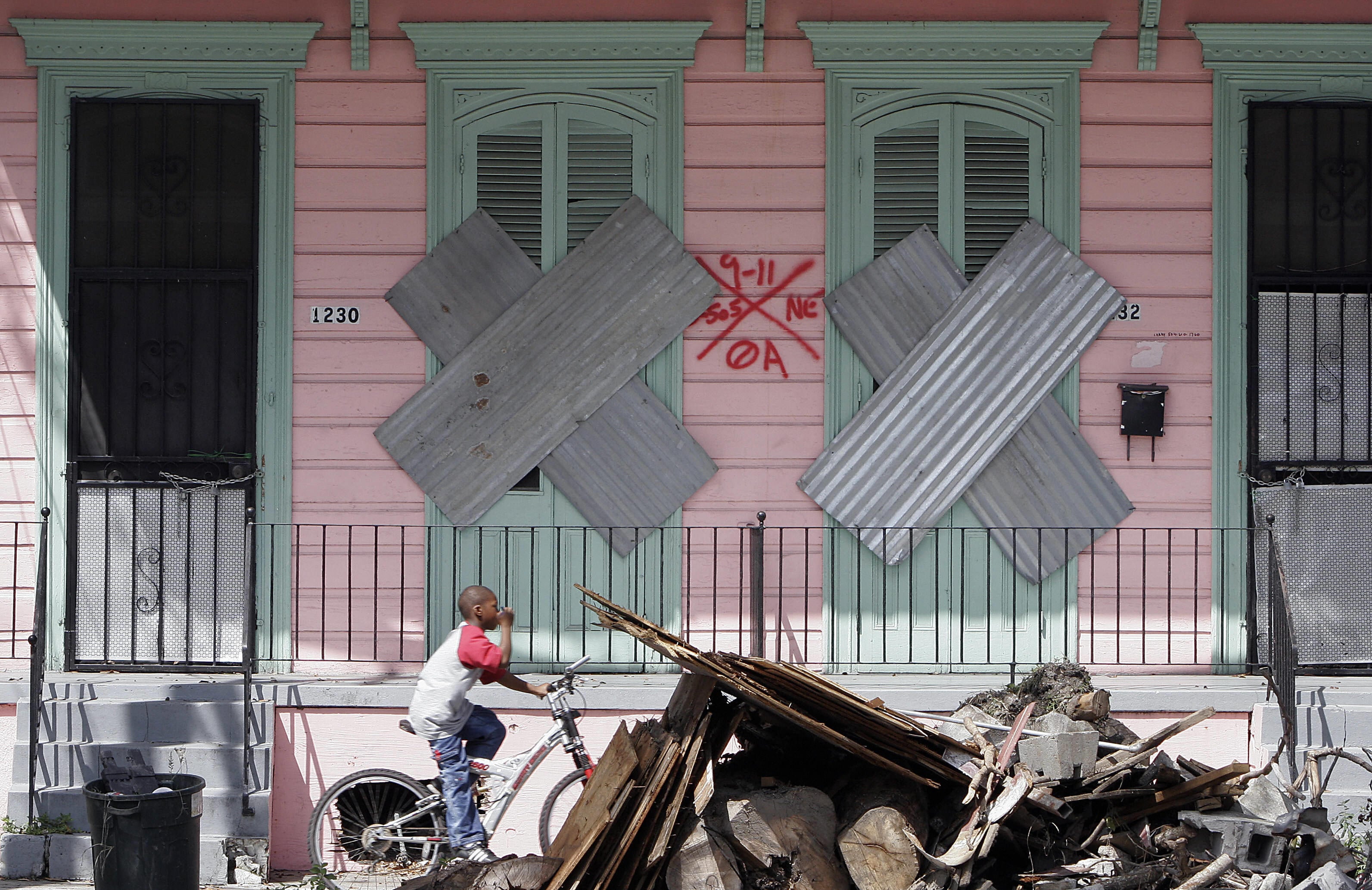Sean Penn helps an elderly man stranded by Hurricane Katrina through the floodwaters to safety on Napoleon St. in New Orleans. The Oscar-winning actor and political activist managed to reach several people who had been trapped in their homes since the killer storm hit Monday. Penn, who was accompanied by a crew of helpers, brought the victims to dry land – and gave them cash as well. Asked what he was doing in the disaster zone, Penn said, “Whatever I can do to help.”
Leroy Fair Jr. salvages a photograph of his great-great-grandfather from his ruined home on Tupelo St. in New Orleans’ lower Ninth Ward on his first day back. Mold has crept across the picture and the walls of the house. Fair is currently living in Houston, Tex., and says that, like many evacuees, he doesn’t plan on returning to the Big Easy.
National Guardsmen stand watch at barricades outside the Superdome as emotional refugees driven from their homes by Hurricane Katrina await evacuation from the flooded city of New Orleans, La. Shots were fired and a near riot erupted at the arena as thousands who had taken shelter there fought to board the buses for the Astrodome in Houston, TX.
A destroyed levee in the West End of New Orleans next to homes submerged under water in the wake of Hurricane Katrina. Louisiana Gov. Kathleen Blanco ordered a full-scale evacuation after levees weakened by the storm gave way and the waters of Lake Pontchartrain flooded the historic jazz city.
Refugees displaced by Hurricane Katrina rush to gather up boxes of military MRE’s (Meals Ready to Eat) dropped off by an Army helicopter outside the Ernest N. Morial Convention Center in New Orleans, La. The building became the epicenter of the city’s agony; thousands of poor people and senior citizens await help, most surviving on little more than water and juice that the most desperate among them seized after smashing through the doors of a nearby grocery store.
Abandoned dogs rescued from the floodwaters ride on the bow of a fishing boat in the submerged Mid-City district of New Orleans, La. Residents who evacuated the Big Easy in the wake of Hurricane Katrina were not allowed to take their animals along, so many of them were forced to choose between remaining at their barely-habitable homes or leaving their beloved pets behind.
Cpl. Karl Krebsbach carries a tattered and muddied American flag he found as he and other Marines from Camp Lejeune, N.C., patrol a Lower Ninth Ward neighborhood for a second time to search for signs of life in the aftermath of Hurricane Katrina.
A military helicopter buzzes over the splintered remains of a house in the flooded Ninth Ward neighborhood of New Orleans, La., in a search for survivors of Hurricane Katrina. Victims were airlifted out and boxes of food and water were dropped for those residents who chose to remain in the low-lying district, parts of which were swallowed up by 20 feet of water when the storm slammed the city.
A man watches a house burn on Napolean St. as helicopters try to extinguish the fire by dropping water from above in Hurricane Katrina ravaged New Orleans. Because of the extensive flooding caused by the breaking of the city’s levies, fire trucks were unable to reach burning homes and in some cases whole blocks burned to the ground.
Trachelle Addison cuddles her 2-week-old son, Jirra-e, in the stands of the Superdome, where some 25,000 refugees took shelter after Hurricane Katrina devastated New Orleans. Some day-old babies and premature infants were airlifted out of hospitals in the disaster area today – in some cases without their mothers.
Willie Cole fishes in front of a building destroyed by Hurricane Katrina’s aftermath on Lake Pontchartrain near the 17th Street Canal in New Orleans. A breech in the 17th street canal levee flooded the Lakeview area with more than ten feet of water during the aftermath of Hurricane Katrina.
Jailed inmates sit in a temporary prison inside a Greyhound bus terminal n New Orleans. About 150 inmates who were accused of crimes in the aftermath of Hurricane Katrina were held at the makeshift prison before being transfered to a state prison to stand trial.
John Riley, 79, who was suffering from diabetes, sitting outside the Superdome in New Orleans waiting to be evacuated, six days after Hurricane Katrina hit the city. The chaos following Katrina showed millions of Americans that deep racial divides, poverty and racism persist in their country.
Hardy Jackson Jr. (12) sits in the area where his home previously stood on Biloxi, Mississippi. Though Hardy, his siblings and his father survived the blow of the hurricane, his mother met a different fate. She was ripped from her husband’s grip as they held onto a tree when the water rushed in. Mississippi confirmed death toll was over 120 by Thursday as more rescue teams combed the devasted areas.
A girl carries clothes as her family waits for assistance after being rescued from their home in high water after Hurricane Katrina in New Orleans. Dozens of people in the area say they were rescued from their homes, but were then abandoned on the roadway with no food, water, or health care.
